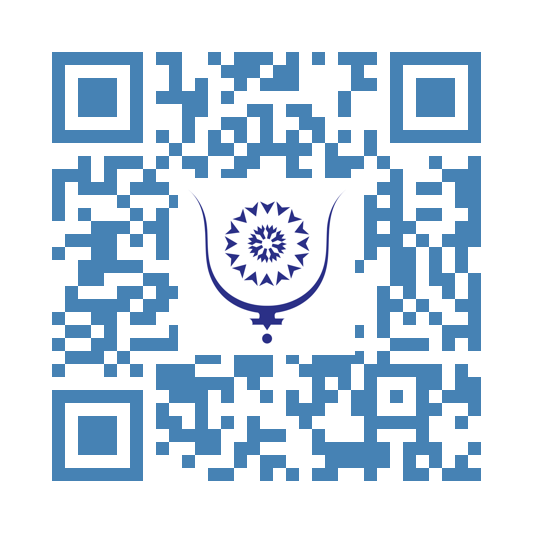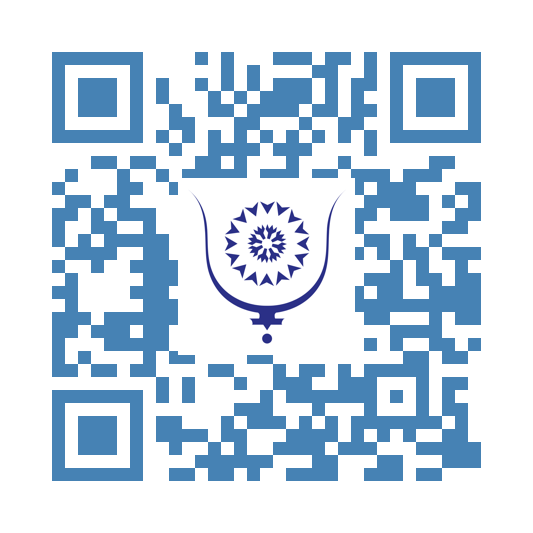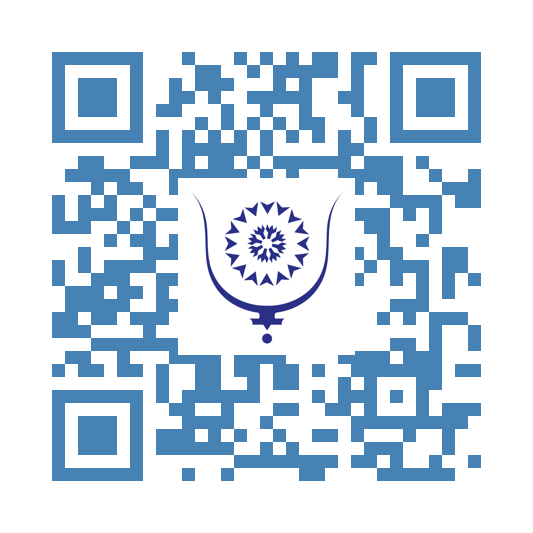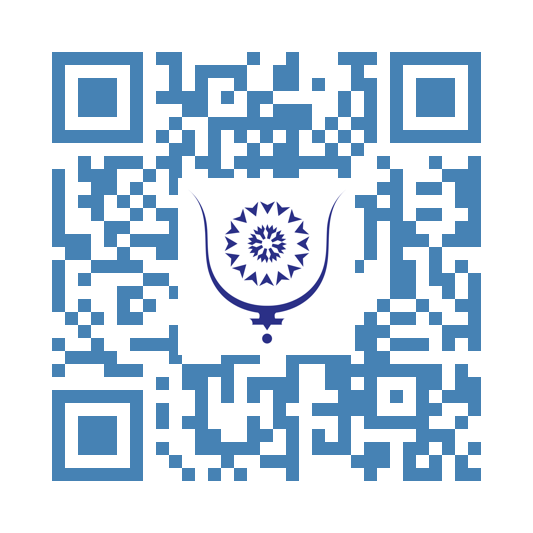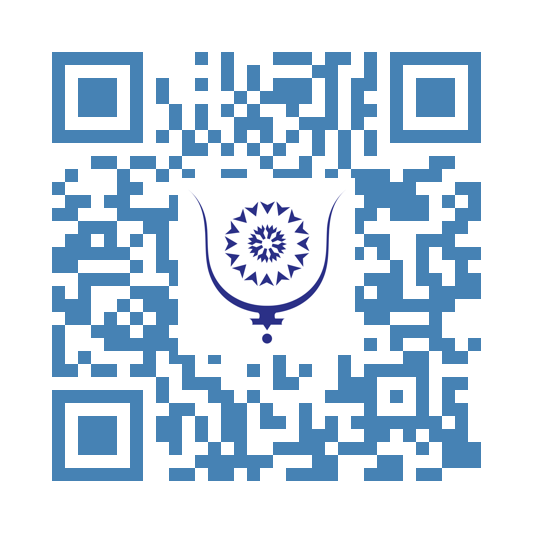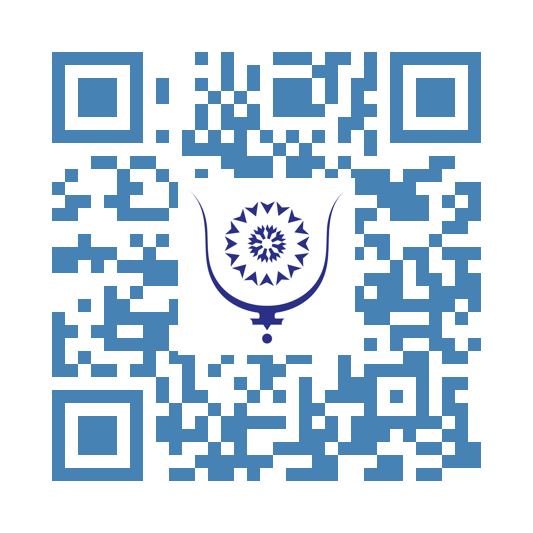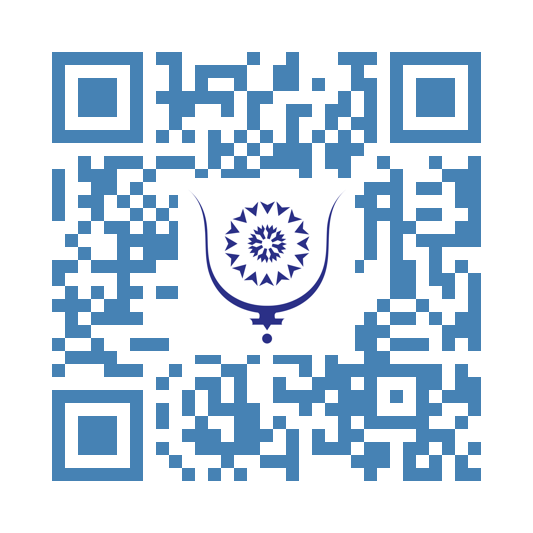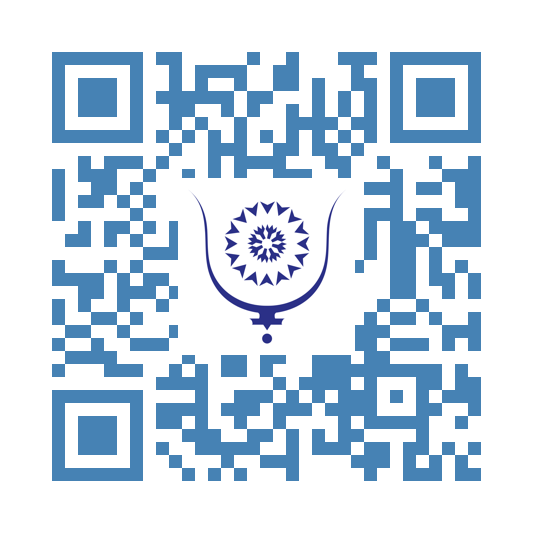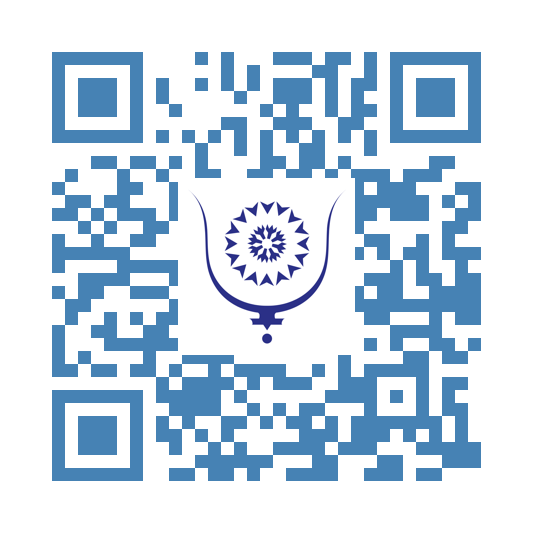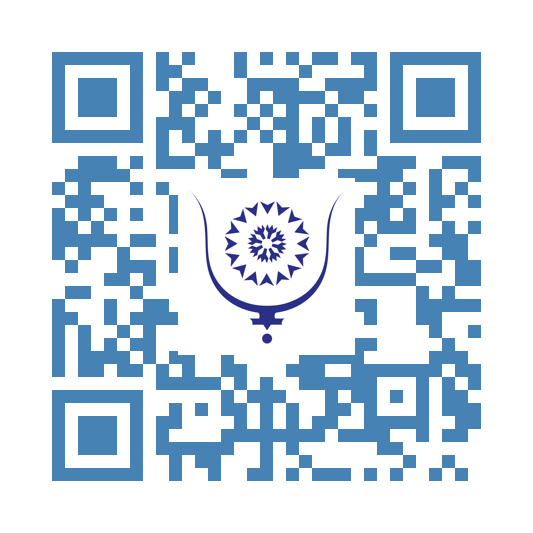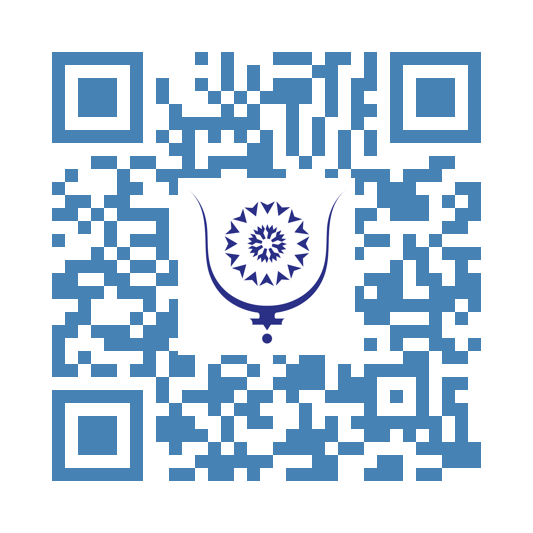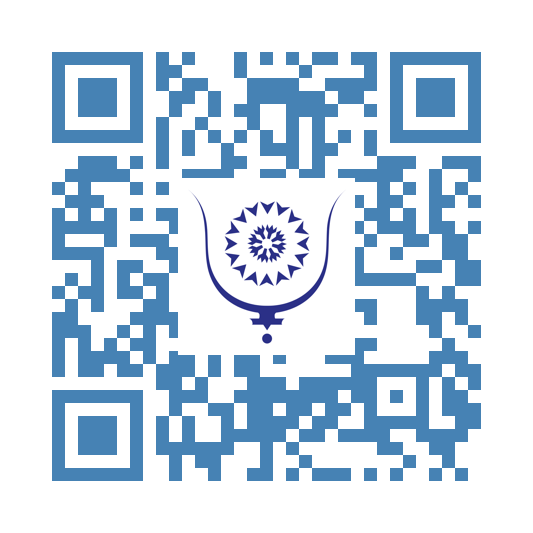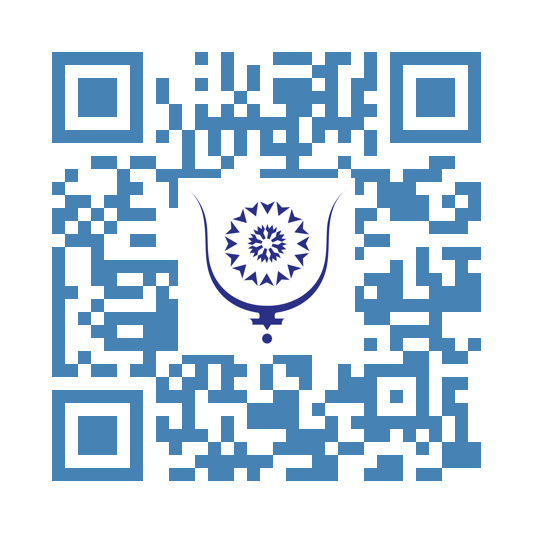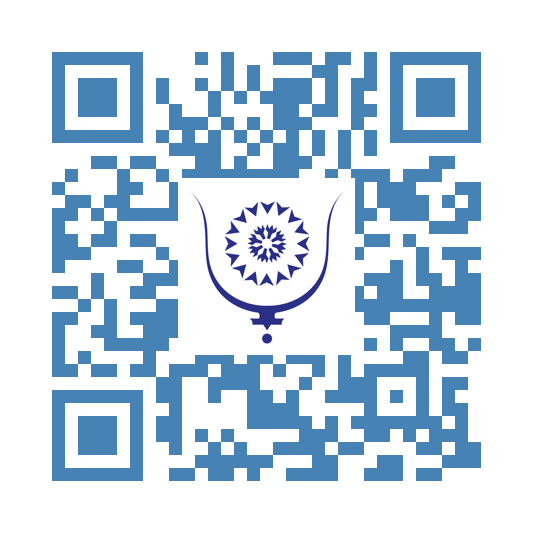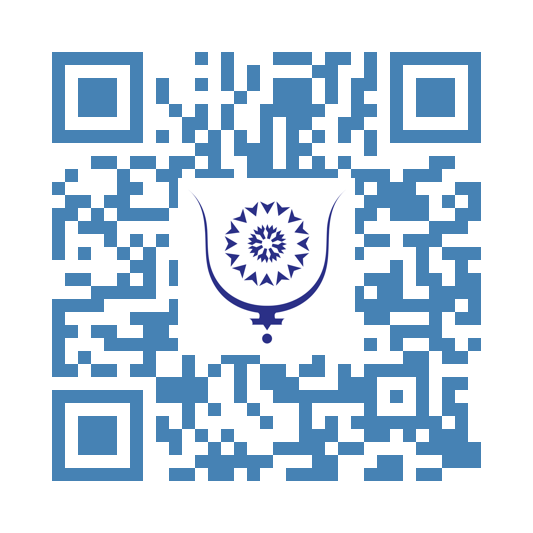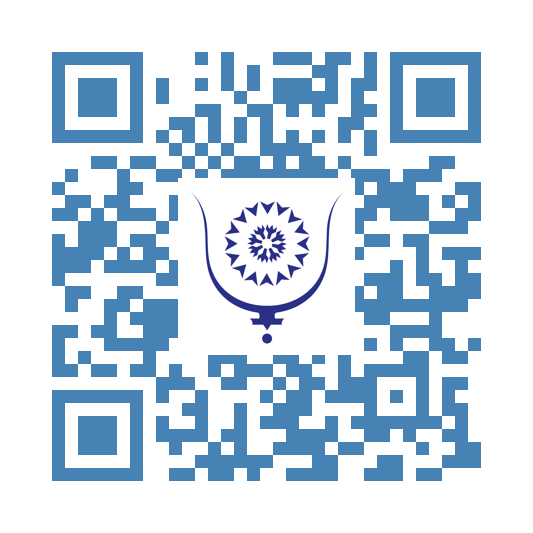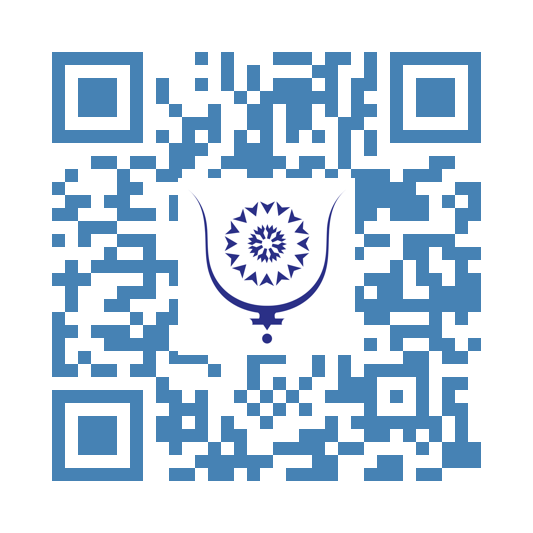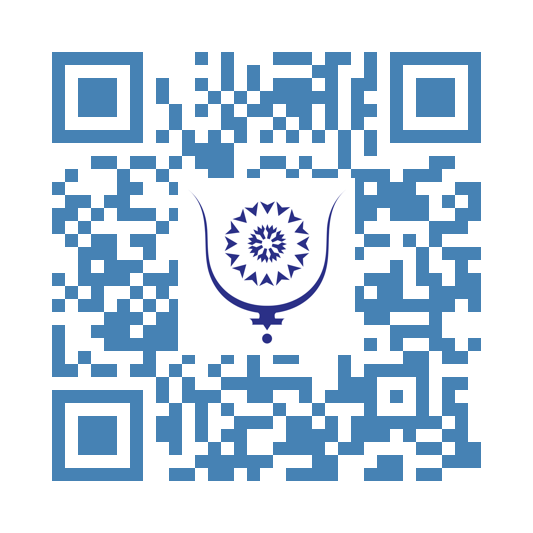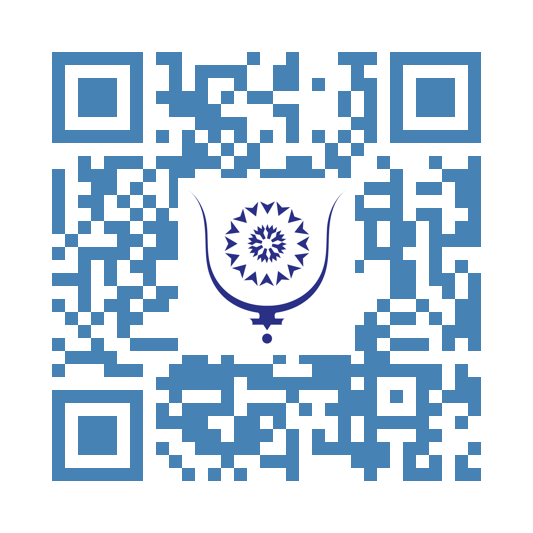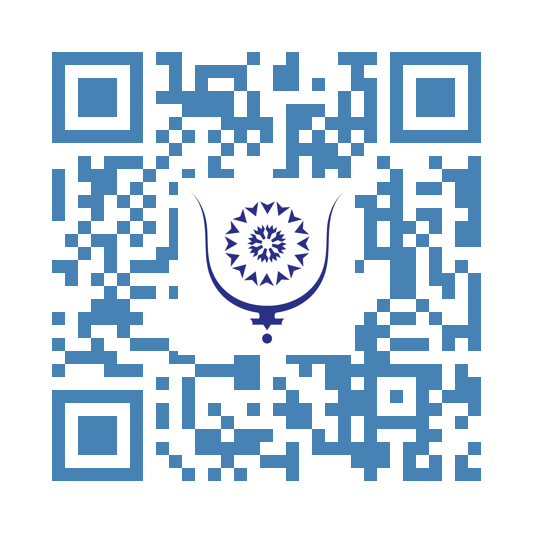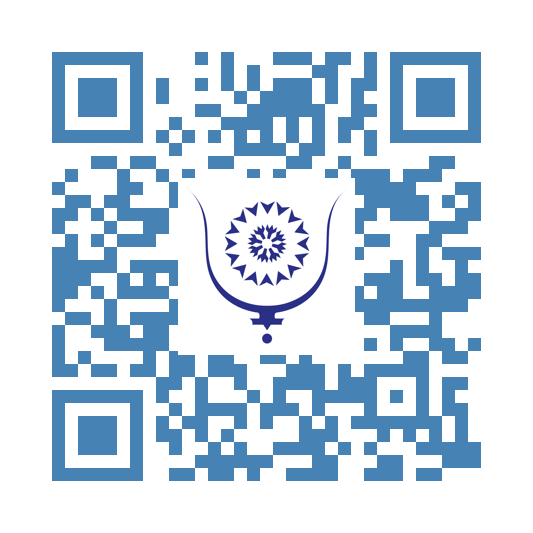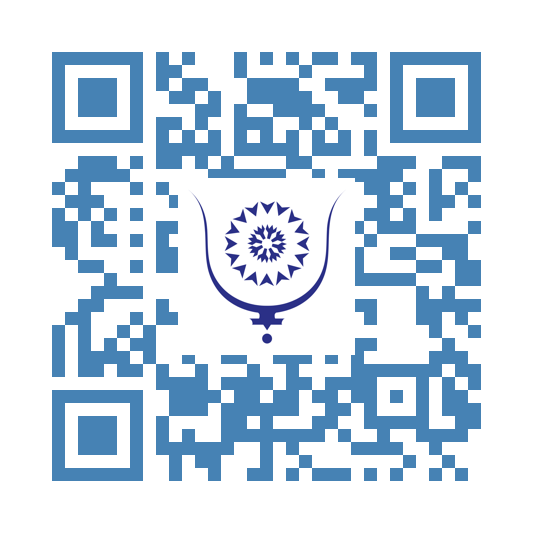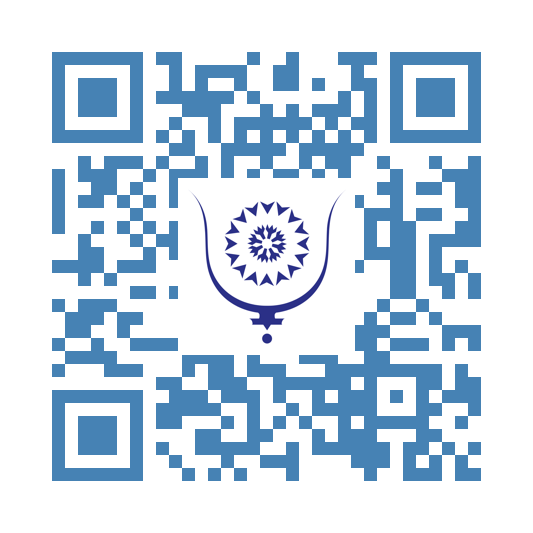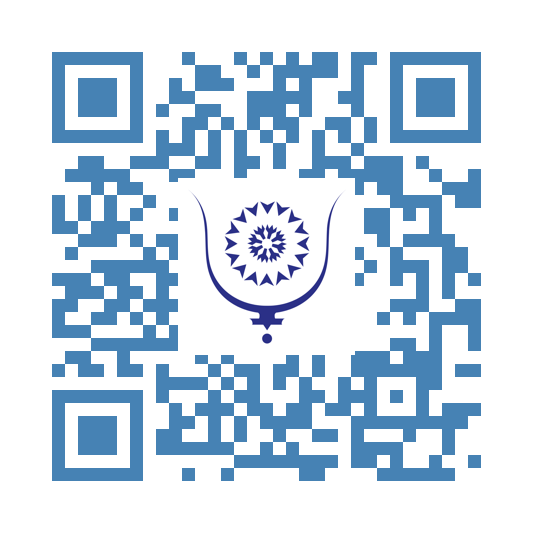The Seven Chakras: A Metaphysical Anatomy of the Soul
6036
Throughout the ages, esoteric traditions, yogic sciences, and mystical philosophies have described the human being as more than flesh and bone—as an energetic organism with subtle centers of power, perception, and spiritual potential. Among these systems, the doctrine of the seven chakras stands as one of the most refined and symbolically rich models of inner transformation. These chakras—meaning “wheels” in Sanskrit—are vortexes of energy located along the body axis, each responsible for specific aspects of consciousness, physiology, and spiritual evolution. From the densest energies of survival to the most ethereal states of divine union, the chakras form a ladder of ascent, guiding the soul towards enlightenment.
The Root Chakra (Muladhara), located at the base of the spine, is the foundation of the entire energetic system. It governs physical survival, grounding, and the instinct for self-preservation. Associated with the element earth, it links the individual to the material world and the ancestral lineage. When balanced, it grants stability, trust, and a strong connection to one's body and environment. When blocked or deficient, it manifests as fear, insecurity, or disconnection from the physical plane. Spiritually, Muladhara represents the coiled energy of potential—the kundalini—awaiting its ascent through the higher centers.
The Sacral Chakra (Svadhisthana), situated just below the navel, is linked to creativity, sexuality, and emotional fluidity. Associated with the element water, it reflects the soul's capacity to feel, to relate, and to generate life—physically, artistically, or spiritually. It is the seat of desire, pleasure, and procreation, and its energy is relational, connecting the self to others through intimacy and shared experience. When in harmony, it allows the free expression of emotion and creative force. When imbalanced, it may result in emotional instability, guilt, or addictive tendencies. Svadhisthana is where passion and refinement meet.
The Solar Plexus Chakra (Manipura) is the center of personal power, will, and self-definition. Aligned with the element fire, it is related to transformation, ambition, and the assertion of the individual will. It is through Manipura that one develops a clear sense of identity and the strength to act upon purpose. When balanced, this chakra radiates confidence, motivation, and integrity. An excess may produce domination or pride, while deficiency results in passivity or low self-worth. Spiritually, Manipura is the alchemical forge where ego begins to be disciplined and transmuted into conscious intention.
The Heart Chakra (Anahata) is the gateway between the lower and upper chakras, and the center of unconditional love, compassion, and spiritual empathy. Associated with the element air, it expands the sense of self to include others, fostering connection, forgiveness, and inner peace. An open Anahata transcends personal desire and embraces unity, allowing one to love without attachment and to serve without self-interest. Imbalances may manifest as emotional coldness, grief, or over-dependence. Spiritually, this chakra is the sacred rose of divine love, unfolding toward the eternal.
The Throat Chakra (Vishuddha) governs expression, communication, and the power of the word. Linked to the element ether (or sound), it represents the capacity to speak truth and to manifest thought into form through language. It is also the seat of inner listening and alignment between inner truth and outer expression. When open and balanced, Vishuddha enables authentic speech and artistic expression. When blocked, it may result in silence, dishonesty, or miscommunication. At the spiritual level, it is through this center that the magician, mystic, or initiate learns to wield the sacred word—the logos—as an instrument of transformation.
The Third Eye Chakra (Ajna), positioned between the eyebrows, is the seat of inner vision, intuition, and higher perception. It transcends rational analysis and opens the gates to symbolic insight, dreams, and clairvoyant awareness. Associated with the light element or pure mind, it integrates the polarities of logic and imagination, allowing one to perceive patterns, archetypes, and spiritual truths. A balanced Ajna chakra produces clarity, insight, and an awakened inner compass. Imbalance may cause delusion, fantasy, or disconnection from reality. Mystically, Ajna is the eye of the soul, through which one perceives the invisible architecture of the cosmos.
The Crown Chakra (Sahasrara), located at the top of the head, is the highest center of consciousness, representing union with the Divine, cosmic intelligence, and spiritual liberation. Unlike the other chakras, Sahasrara is not governed by an element but by pure consciousness—chit—itself. It is symbolized by a thousand-petaled lotus, forever unfolding into infinity. When this chakra is fully awakened, the individual transcends ego and merges with universal will, experiencing profound bliss, silence, and liberation. Imbalances may manifest as spiritual disconnection, nihilism, or excessive intellectualism. At its highest vibration, Sahasrara is not a center of power but a doorway to the return to the Source.
Together, the seven chakras form a living mandala of human potential. They are not merely energetic centers but evolutionary thresholds, each inviting the soul to purify, awaken, and integrate aspects of the self on its path toward unity with the divine. When harmonized, these chakras become a ladder of light—a sacred ascent from survival to transcendence, from matter to spirit. The awakening of the chakras is thus not an end in itself, but a means of returning to wholeness, where the human becomes a conscious expression of the infinite.
Share:
The Seven Chakras: A Metaphysical Anatomy of the Soul
copy:
https://bluwr.com/p/323058346
Genesis...
8521
I greatly enjoy looking out windows, any windows. Windows have always offered me a picture of life. A picture that constantly changes, a picture that I alone see before it disappears forever. Maybe that is where my taste for the ephemeral comes from. It is my only certainty.
What I am also sure of is that it comes from the fact that as a baby and young child, my mother would place me by the window where I would hold onto a grille. An opportunity to be both inside and outside at the same time and to let her go about her many responsibilities as a housewife. It was a traditional Moroccan grille, typical of ours. Today, I have reused that same grille design on the windows and balconies of my house.
I have in fact remained my mother’s eternal child, no doubt like we all remain so, but probably differently, otherwise, uniquely.
The window is an escape from the cramped space of the house. In fact, all houses are cramped. The house, paradoxically despite its smallness, is a space of freedom, intimacy, and security. It is also a space that distances the horizon and makes it sublime. The window allowed me to raise my head and look far. As far as this window allowed me to see.
The house cultivates the dream; the window waters it.
On the evening my mother passed away, I stood by the window. It seemed to me I heard her voice again speaking from afar to reassure me. My mother loved me very much. She did not say it, but made me feel it through the tone of her voice, her gaze, and a slight smile at the corner of her lips. A smile she had a special secret to. My mother’s smile was genetic. I clearly saw she inherited it from my grandmother—Cherifa Lalla Zhour had the same smile.
My mother was not expansive.
She extended her love to my children later, and I felt it. I was her eldest, her first female experience, her first pains, her first childbirth, the first baby cry to her ears.
I owe my mother much: the sensation of a pencil in hand, the touch of the softness of paper before writing on it, the taste for reading and the pleasure of manual work.
My mother was among the first classes of the modern school in Fès. My maternal grandfather, Si Ahmed Ben Ali, had the wisdom to send her to school against the opinion of people at the time—family, neighbors, and onlookers. She traveled a long distance from Saqaet El Abbassyine to her school. It was in Fès j’did, a neighborhood of great nationalists, intellectuals, artists, and state clerks: Bahnini, Benbouchta, Moulay Ahmed El Alaoui, Ahmed Chajai, and many others. It is the stronghold of Wydad of Fès.
I have many wonderful memories of Saqaet El Abbassyine. From time to time, I go for a walk there to recharge myself. The dilapidation of Bab Riafa, the sad passage by Lalla Ghriba to reach Saqaet El Abbassyine, the continuation by Sidi Hmama to arrive at Qobt Assouk, saddens me every time. So, to soothe my pain and sorrow, I go and sit at Bab Boujloud to enjoy a good glass of tea prepared in a traditional samovar, under the famous mulberry tree.
The magic of Fès is unmatched.
My father, on the other hand, was affection in the absolute. The exemplary man. The man who forged my pride and committed my life to serving the country. Moroccan at heart, attached to the land of his ancestors. Proud to have been an active nationalist against the protectorate. He spoke of his people’s struggle against French soldiers. He kept fresh memories of the fights of Bou Gafer and the brave battle of his people. He was happy to have served his country but also disappointed with the evolution of some things. He said that we were losing our soul with the decline of our attachment to ancestral values; remembered by all the families of old Rabat who still recall him for having treated their children and eased their pains. He passed away certain that Morocco could have done better.
He remained attached to his parents and adored them, attached to his native land that he visited every year, attached to his people to whom he offered land to expand the Sidi Daoud cemetery, his forever village, today swallowed by a soulless Ouarzazate. I am not surprised. My father is a direct descendant of Sidi Daoud, a Sufi Sheikh and great scholar who left many works including the famous *Oumahat Al Wataeq, Al Mountafaa Bih Fi Anawazil*.
My father loved Rabat and its beach. It was there he saw the sea for the first time in his life, coming from the other side of the Great Atlas, which climate change is now altering.
It was at the Rabat beach that he learned to swim.
Today, his grave overlooks that beautiful beach and ocean. His resting place is bathed in the sea air that blows continuously over the hilltop, the final abode of thousands of souls at rest, of lives both rich and less rich, and of memories forever lost. The cemetery tells a lot about the place we give to our dead, and it does not speak well of us.
So, like my brothers and sisters—Jalil, Moughni, Rajae, Atika, Abdelmoutaleb, Elhoussein, Soumaya, I am a kind of accident of nature. A father from Ouarzazate marrying a girl from Fès; that was rare. It was 1950.
The maternity hospital where my lungs filled for the first time with air and where I cried out announcing my coming to life is still there. It was Tuesday, 11:37 am, May 15, 1951. Each time I pass by, something brings me back to memories I have created from my mother's stories. I see again her pride and my father's joy at my birth.
By chance, on the way to bury my mother, and years later my father, we passed along the Almohad wall. The historic maternity hospital of Rabat is just behind. The circle was thus completed.
My mother's name was Lalla Amina Makhloufi and my father’s Ahmed Belhoucine El Ouarzazi. The civil registry attendant gave him the surname Daouda, probably because he was born in Sidi Daoud or simply because that person had been influenced by a stay in sub-Saharan Africa...
Share:
Genesis...
copy:
https://bluwr.com/p/318522084
Stray dogs and cats: a growing challenge for public health and urban peace in Morocco...
11105
The proliferation of stray dogs and cats in the streets raises major challenges for urban quality of life and even more so for public health. As their numbers increase exponentially, the consequences are multiple: noise nuisances, risk of accidents, spread of diseases, and a sense of insecurity for many citizens.
A notable aspect of this issue is the significant difference between the social perception of cats and stray dogs. Cats, often perceived as less aggressive, are generally not considered harmful. They are abundantly fed in public spaces by individuals, sometimes due to so-called religious beliefs. According to some, Muslims should show compassion towards cats, which would explain a certain social tolerance towards them. They thus benefit from some benevolence and are extremely numerous, living and multiplying in public spaces without being disturbed; on the contrary, shelters are often provided to help female cats give birth peacefully.
In contrast, stray dogs do not receive the same treatment. Many people suffer from cynophobia (fear of dogs), a quasi-cultural phenomenon. More often perceived as a threat, especially because of their ability to attack, they are generally criticized. This negative image has been reinforced following several serious incidents in recent years: violent attacks resulting in serious, even fatal injuries have marked public opinion and increased concerns.
The massive presence of these stray animals has direct repercussions on public health. The absence of veterinary control and regular sanitary interventions promotes the spread of diseases transmissible to humans. Stray dogs and cats can carry highly contagious and serious diseases. This issue is even more worrying in dense urban areas where contact between animals and humans is frequent. Children, in particular, are especially vulnerable to bites or scratches, as well as to the infections that may result.
The health risk is therefore extremely concerning, especially since many diseases can be transmitted to humans.
1. Rabies: a deadly viral disease mainly transmitted by the bite or scratch of an infected dog. It remains a major public health problem in several regions despite vaccination campaigns. Nearly 400 cases and 20 deaths are recorded each year. Four recent death cases have been widely reported.
2. Toxoplasmosis: an infection caused by the parasite Toxoplasma gondii, transmitted by contact with contaminated cat feces, notably via litter. Generally mild, it poses a serious risk for pregnant women, potentially causing fetal malformations.
3. Leptospirosis: a bacterial disease transmitted by the urine of infected dogs, which can cause serious infections in humans. Between 2005 and 2017, 372 cases were declared with a mortality rate of 17.7%. 52.2% of cases occurred in urban areas.
4. Leishmaniasis: a serious parasitic disease transmitted by stray dogs, which are reservoirs of this parasite. Nearly 2,000 cases per year.
5. External and internal parasites: fleas, ticks, intestinal worms, which can also infect other animals.
6. Cat scratch disease: caused by the bacterium Bartonella henselae. It causes fever, swollen lymph nodes, and fatigue, especially in children and immunocompromised people.
7. Ringworm: a contagious fungal infection through contact with the fur or environment of infected cats, causing distressing skin lesions.
8. Pasteurellosis: a bacterial infection transmitted by bite or scratch, caused by Pasteurella multocida, which can cause local pain and inflammation.
9. Echinococcosis: a parasitic disease related to intestinal worms developed in cats, which can severely affect the human liver and lungs.
10. Mange and other parasitic infections: transmitted by direct contact with affected stray cats.
Strict sanitary management is therefore necessary, including vaccination, sterilization, and responsible handling of this animal population in urban areas.
Beyond health risks, stray animals cause nuisances in streets and residential neighborhoods. Nocturnal barking disturbs residents' sleep, while droppings in public spaces degrade cleanliness and the image of cities.
Facing this complex situation, several approaches can be considered. It is crucial to develop awareness campaigns to encourage citizens to adopt responsible behaviors, especially regarding food given to stray animals. Special emphasis should be placed on sterilization to control reproduction.
Moreover, implementing integrated public policies combining capture, veterinary care, and relocation of stray animals appears essential. These measures must respect the cultural and religious sensitivities of the country, notably involving religious authorities in creating harmonious responses. A fundamental effort towards creating dedicated spaces—shelters and controlled feeding points—could channel animal presence and reduce conflicts with the population.
Moroccan NGOs published an open letter addressed as a last resort to His Majesty the King on August 3rd, reacting to extermination campaigns led by some local authorities:* "We have exhausted all institutional channels without finding attentive ears among the authorities concerned," *they say, describing the methods used as "cruel,*" contradicting " *the values of compassion promoted by religion and the monarchy." The problem is exacerbated, according to some, by an ineffective public policy and a lack of resources dedicated to capture, sterilization, and care. The cycle of proliferation would continue, reinforcing a difficult-to-reverse spiral. The government denies these accusations and states that it applies the method **"Trap, Neuter, Vaccinate" **(catch, sterilize, vaccinate, and release animals identified by an ear tag in their original territory). It would have allocated 230 million dirhams to this. However, few tagged animals are seen in the streets.
Clearly, this is not just an animal issue but a major public health and urban coexistence challenge that requires a pragmatic and balanced approach, respectful of traditions and sanitary and security needs.
Share:
Stray dogs and cats: a growing challenge for public health and urban peace in Morocco...
copy:
https://bluwr.com/p/315072485
Multidimensional Poverty: Decoding the Oxford Index and the Situation in Morocco
11850
When poverty is mentioned, it is often thought of as insufficient income. However, poverty encompasses much broader and more complex dimensions such as access to education, health, decent housing, and other basic resources depending on societies and their cultures.
It is on this or a very similar basis that the Multidimensional Poverty Index (MPI) was designed and unveiled in 2010 by the Oxford Poverty and Human Development Initiative (OPHI) at the University of Oxford. The index was adopted during the 20th anniversary of the United Nations Development Programme (UNDP).
But what exactly is multidimensional poverty or the Oxford Index?
*Multidimensional poverty is the simultaneous and synchronous deprivation experienced by individuals across different essential aspects of life. The Oxford Index, or MPI, aims to measure this aspect of poverty based on 10 indicators grouped into three main dimensions: health, in terms of nutrition and child mortality; education, concerning school attendance, years of schooling, and living conditions; namely access to drinking water, electricity, sanitation facilities, quality housing, and essential assets.*
A household is considered poor according to the MPI if its members are deprived in at least 33% of these indicators. The index is calculated using a simple formula:
**MPI = H × A**
where **H** is the proportion of people who are poor and **A** is the average intensity of deprivation among these people.
This approach provides a more nuanced diagnosis than a simple monetary measure of poverty. It allows identifying the exact origin and nature of the deprivations and thus more effectively guides public action.
The introduction of the MPI in Morocco has profoundly renewed the understanding of poverty in the country. Ten years ago, this index stood at 11.9%. Thanks to significant mobilization and targeted policies, this rate has decreased to 6.8% according to the 2024 national census, representing a halving. Translated into numbers of affected people, the rate dropped from 4.5% to 2.5% of Morocco’s current 36 million population.
Despite these notable advances, poverty remains marked by strong regional and social disparities. Deprivations mainly concern education and living conditions such as access to drinking water, decent housing, and medical care. Multidimensional poverty is more concentrated in rural areas, accounting for 72% of the poor, with an alarming rate among rural children estimated at nearly 69%.
In his 26th Throne Speech, His Majesty the King acknowledged the progress made while expressing dissatisfaction and the determination to rapidly correct the situation.
Indeed, Morocco is still behind many other countries that display lower multidimensional poverty rates and have recorded faster declines in the index; some countries have therefore succeeded better. For example, Croatia already had a rate below 0.5% in 2022. China, with 12.5% in 2002, and Turkey, with an index of 8.5% in 2007, have recorded faster decreases and are now among the best-ranked countries. Several countries in Asia and Latin America have also seen significant declines thanks to innovative strategies, ambitious social policies, and sustained international support.
Morocco remains better ranked compared to many Sub-Saharan African countries. Mali had an MPI of 77.7% in 2012 and Burundi 80.8% in 2010. However, Morocco still maintains a significant gap with global leaders and even some developing countries in the Mediterranean and Asia.
To enable the Kingdom to maintain and accelerate its progress, drastic and effective measures requiring genuine political courage and boldness are needed. Several avenues should be considered simultaneously, such as:
- Optimizing investment in education by reducing school dropout, promoting equal access for girls and boys in rural areas, and improving teaching quality and attractiveness through teacher qualification and adapted curricula.
- Seriously addressing the issue of the language of instruction. Moroccans speak a language that is not reflected in schools. Darija is the Moroccan language and should be valorized to create a continuum between everyday life and learning. All education specialists and dedicated international bodies insist on the use of the mother tongue for more efficient learning, at least in the early school years, as seen in all countries successful in education.
- Redefining what illiteracy means in Morocco. Is it still appropriate to consider illiteracy as the inability to master languages that are not used in daily life? The working language and trades that sustain Moroccans and in which all exchange, communicate, and act are not taken into account. This question must be reconsidered in light of scientific evidence, without outdated or unproductive dogma or ideology.
- Accelerating medical coverage and social protection through a faster and less restrictive generalization.
- Encouraging health and education professionals to settle in remote and targeted areas through significant financial incentives and housing.
- Expanding and strengthening basic infrastructure with particular focus on drinking water, electricity, sanitation, and social housing even in rural areas. The issue posed by scattered housing should no longer be a taboo. Some recurring problems simply cannot be solved in certain regions due to the type and location of housing.
- Targeting public efforts territorially through fine planning and priority allocation of appropriate resources to the most vulnerable regions, taking into account the real needs of the populations concerned.
- Developing and refining social safety nets and resilience mechanisms to better protect populations affected by climate change.
By adopting an integrated, territorially targeted approach based on precise MPI data, Morocco can consolidate the gains already made and catch up with the best performers in the region and the world in the near future, given its stability, significant growth rate, diversified and increasingly efficient economy, and, of course, the ingenuity of its people.
Share:
Multidimensional Poverty: Decoding the Oxford Index and the Situation in Morocco
copy:
https://bluwr.com/p/312787111
[Science #4] Precision Nutrition: Tailoring Your Diet Beyond Hunger and Excess
11933
Hunger and dietary excess may seem like opposite ends of the spectrum, yet both can undermine health. Too few calories disrupt essential physiological processes and energy metabolism, while chronic overeating—especially of nutrient-poor foods—can drive metabolic dysfunction, chronic inflammation, and raise the risk of long-term diseases. Ironically, consuming more nutrients than needed often fails to meet the body’s precise biochemical demands, accelerating cellular wear and potentially shortening lifespan.
Emerging research suggests that certain calorie-dense foods, when consumed carelessly, may harm healthspan—the number of healthy years lived. Conversely, mindful nutrient intake—or even periods of moderate hunger—can sometimes benefit overall physiology more than habitual overeating. The key lies in recognizing that each individual’s nutritional needs are unique. This is the foundation of Precision Nutrition.
**From "One-Size-Fits-All" to Tailored Nutrition**
The term “precision” is often associated with medicine, where a treatment is matched to a patient’s genetic profile instead of relying on a standard prescription. That same philosophy is now transforming the way we think about food. Personalized nutrition moves beyond outdated dietary guidelines by using your genetic makeup, lifestyle, and preferences to determine which foods serve your body best. Your DNA might reveal, for example, that you absorb certain vitamins inefficiently, or that specific foods help stabilize your blood sugar more effectively. This approach empowers you to make dietary choices tailored to your biology—not to fleeting trends.
**How Does It Work?**
It starts with a DNA sample, analyzed for hundreds of tiny genetic variations known as polymorphisms. These influence traits like lactose intolerance, vitamin D absorption, caffeine metabolism, and sensitivity to salt or sugar. Using advanced algorithms, nutrition scientists translate this data into actionable diet strategies.
For instance:
- If your genes show low omega-3 absorption, your plan might emphasize fatty fish, flaxseed, or targeted supplements.
- If you metabolize caffeine slowly, reducing coffee intake could help avoid sleep problems or anxiety.
One striking example comes from the GC gene, which affects how well your body raises blood vitamin D levels after supplementation. People with certain GC variants may require more sunlight exposure or higher supplement doses to achieve optimal health. The power of personalized nutrition lies in decoding the relationship between your genes and every bite you take—turning food into a truly personal form of medicine.
A comprehensive understanding of each individual’s unique nutritional needs—driven by genetic, metabolic, microbiome, and lifestyle factors—enables the development of personalized dietary interventions that have transformative potential far beyond individual health. Precision nutrition not only enhances quality of life and healthspan but also offers a pathway to optimize resource use and address global challenges such as hunger and malnutrition.
Emerging perspectives highlight that precision nutrition, while often associated with high-income countries, is increasingly seen as a vital strategy to democratize health and tailor nutrition recommendations for entire populations, including those in low- and middle-income countries where malnutrition and food insecurity remain urgent issues. By leveraging advanced technologies and data-driven diagnostics, precision nutrition can target specific micronutrient deficiencies, metabolic conditions, and even genetic variations prevalent in different communities. This targeted approach moves beyond generic dietary guidelines, allowing for more effective, culturally relevant, and sustainable interventions that better meet the biochemical and physiological demands of diverse populations.
Share:
[Science #4] Precision Nutrition: Tailoring Your Diet Beyond Hunger and Excess
copy:
https://bluwr.com/p/306841367
The Sevenfold Constitution of the Human Being
11976
Several esoteric traditions believe that the human being is not limited to a single body of flesh and blood, but instead exists as a amalgam of seven interpenetrating bodies, each vibrating at a distinct frequency and corresponding to a unique level of consciousness. This constitution in layers forms a bridge between the material and the divine, mapping the soul’s descent into matter and its potential ascent back to the source.
The physical body is the most tangible and material of the seven. It serves as the vessel through which the soul experiences the physical world, bound by the laws of biology, space, and time. It is composed of flesh, bone, and matter, but it does not exist in isolation. Its vitality is sustained by subtle forces, and without these, it would be inert. The physical body is the site of sensation and action, allowing the soul to manifest its will within the temporal realm.
The etheric body, also known as the vital or pranic body, underlies and interpenetrates the physical form. It is made of subtle life-energy and functions as the blueprint or energetic matrix that maintains the structure and function of the material body. It is through this body that prana, chi, or life-force flows, animating tissues, regulating health, and forming the auric field sometimes noticed by those with psychic sensitivity. It connects the material to the immaterial, serving as a bridge between body and soul.
The astral body governs emotion, desire, and imagination. It is the seat of passions, instincts, and inner images, and it serves as the vehicle for dreams and psychic experiences. This is the body that travels in the dream state or in altered states of consciousness and is central to experiences of astral projection. It has a more fluid consistence than that of the etheric, and it responds instantly to emotional impulses, making it the most volatile and reactive of the subtle bodies.
The mental body is the domain of thought, cognition, and reason. It is often divided into two components: the lower mental body, which takes part in concrete thinking, memory, and logic, and the higher mental body, which perceives abstract truths, archetypes, and universal principles. Through the mental body, we develop self-awareness, belief systems, and discernment. It is through the improvement of this body that the ego begins to dissolve, allowing thought to serve truth rather than self-interest.
The causal body, or buddhic body, contains the soul’s higher wisdom and accumulated experience. It is the vessel of intuition, compassion, and non-dual perception. This body exists beyond linear time and holds the karmic imprint of previous incarnations—the lessons learned and the spiritual tendencies cultivated. It is the realm of inner guidance and soul purpose, allowing the being to act from harmony rather than reaction, and to notice unity where the lower mind sees separation.
The spiritual body, or atmic body, represents the divine will and the soul's alignment with cosmic purpose. It is the seat of spiritual volition—not personal desire, but the execution of the higher law. This is the level of mastery where individual will is surrendered to divine intention, and where the soul becomes a conscious co-creator with the universal intelligence. Those who access this body operate from a plane of deep inner sovereignty and radiant stillness, often manifesting profound spiritual authority.
At the highest level lies the monadic body—the pure spark of divinity, the eternal self, the undivided essence from which all the other bodies emanate. The Monad is beyond all form and function, untouched by time, death, or individuality. It is the source of all consciousness within the being and the point of union with the Absolute. Realization of the Monad is the apex of spiritual evolution, where the soul transcends all identities and merges into the infinite. It is the return to the One, the reintegration of the many into the indivisible light of origin.
In most human beings, these bodies remain partially dormant or fragmented. The great work of spiritual initiation is to harmonize and awaken each body, gradually purifying the lower vehicles and aligning the consciousness to subtler vibrations. Practices such as ritual, meditation, prayer, alchemy, asceticism, and sacred study serve to align these bodies and bring them under the guidance of the Monad.
As one ascends the inner planes, perception shifts from the senses to symbols, then to pure archetypes, and finally to the formless light of the divine. The path is not linear but spiral—each cycle of refinement bringing the soul closer to its origin and its infinite potential.
Share:
The Sevenfold Constitution of the Human Being
copy:
https://bluwr.com/p/304907584
Moroccan Tourism in 2025: Spectacular Growth but Persistent Challenges
12032
Moroccan tourism has been experiencing a very favorable phase since 2024. Tourism revenues reached nearly 50 billion dirhams in the first quarter of the current year, confirming a robust recovery after the global health crisis. This upswing is the result of a combination of factors that can be analyzed from several perspectives.
Certainly, the gradual lifting of health restrictions worldwide enabled a massive return of international visitors, particularly Europeans, but also travelers from other regions of the globe. With its unique cultural richness, history, lively medinas, diverse landscapes ranging from the Atlas Mountains to the Atlantic and Mediterranean beaches, sunshine, colors, unparalleled craftsmanship, refined cuisine, and the warmth of Moroccans—their smiles, their ability to quickly connect with others, and their tolerance—the Kingdom has managed to attract clientele seeking authentic and varied experiences. After two difficult years, this strong recovery reflects renewed tourist interest in the destination.
According to the government, the rise of the tourism sector is linked to a strategy and sustained policy of investment in infrastructure: world-class hotels, improved transport networks, airport modernization, and expansion of air routes. These efforts have undoubtedly significantly enhanced the country’s accessibility as well as visitor comfort and security, all now essential elements to remain competitive in a highly competitive international market.
The Kingdom has also heavily invested in its global visibility through well-calibrated promotion campaigns, regular presence at major international trade shows, and strategic partnerships with key tourism players. This well-thought marketing strategy has attracted a diverse clientele, amplifying the effect of a strong national brand.
Developing the tourism offer plays a crucial role in this dynamic. In addition to traditional cultural and seaside getaways that the country is famous for, Morocco is now focusing on growing segments: adventure tourism, desert trekking, extreme sports, ecotourism, national parks, protected areas, and cultural events, international festivals, and exhibitions. This diversification aims to attract different tourist profiles year-round and avoid excessive seasonality.
The exceptional event of the 2022 FIFA World Cup, through the performance of the Moroccan national team and the enthusiastic support of its supporters in the stadium and the streets of Doha, had an amplifying effect on the country’s global visibility and image. This competition put Morocco on the international tourism map, attracting a significant influx of visitors and creating immediate spotlight on its attractions. As a direct result, Morocco exceeded in 2024 its initial target of 17.5 million tourists planned for 2026—a remarkable achievement.
However, without contesting the announced figures, this bright spot should not mask certain challenges. A closer look at the statistics reveals a different reality. A significant portion of recorded tourists, about 50%, are Moroccans residing abroad (MRE), who visit mainly for family reasons rather than tourism linked to government strategies. It should not be overlooked that these same MRE often denounce recurring problems, foremost among them the high cost of air transport with Royal Air Maroc, which is heavily subsidized by public funds. Price gouging in hotels and restaurants, especially in summer, is also widely criticized. These difficulties impact the retention of international visitors as well, as return rates are very low. The fact that operators at all levels impose exorbitant price increases during peak season tarnishes the country’s image and discourages visitors.
Staying in Morocco is abusively expensive for unclear reasons.
Indeed, few tourists return multiple times after their first visit. This raises questions about the quality of the customer experience and the destination’s competitiveness.
Excluding MRE and visitors traveling for professional reasons, the number of foreigners visiting Morocco by deliberate choice is therefore not that high. This calls into question the efficiency of the very large subsidies granted to the sector and, above all, the effectiveness of the promotional campaigns.
The Ministry of Tourism and the National Tourism Office attribute the recorded success to their proactive policy, but the reality shows that this growth largely relies on the emotional attachment of the MRE, a factor less controllable by public authorities.
Will the post-World Cup momentum and the goodwill generated be sustained over the long term?
It is difficult to precisely gauge how much of the upswing is due to the World Cup context and what the real impact of public policies is, especially subsidies and aid allocated to the sector. This impact, however, cannot be ignored.
To maintain the course and ensure sustainable growth of the sector, it is essential that Morocco continues and deepens its efforts: ongoing investments and innovation in the tourism offer. However, the major urgent challenge remains controlling the outrageous costs for visitors. The government’s silence on this issue risks hurting the sector badly. The summer sunshine is too expensive. It is time for the entire industry to stop acting like predators, and for scams and extortion to be forever banned quickly.
Another key challenge is integrating sustainable development policies to preserve natural and cultural resources within the broader framework of inclusive development across all regions of the country. It is also imperative to include citizen awareness and education in this vision. Polluted or neglected beaches and sites, annoying incivility, and inappropriate behaviors are additional challenges to be addressed.
Tourism must remain one of the major engines of Morocco’s economy, generating jobs and wealth while enhancing the country’s international standing.
Still, we shall wait until the end of the campaign to make a final judgment, especially on the trajectory of the numbers and the effectiveness of measures announced in the sector’s development strategy, and above all to draw the necessary lessons.
Share:
Moroccan Tourism in 2025: Spectacular Growth but Persistent Challenges
copy:
https://bluwr.com/p/302091841
[Short Stories #4 ] A Red Flower Among the Ice [1/3]
11930
The radio crackled softly in the dim kitchen, the announcer’s voice steady but tinged with concern.
“This week, heavy snow is expected. Please be careful if you must travel and …”
Karl was busy on the living room floor, toy cars rattling loudly in his hands as they scattered across the rug. His father, standing in the kitchen doorway, raised a hand gently.
“Karl, please, not so much noise. I want to listen to what they’re saying on the radio.”
“Sorry, Dad,” Karl muttered, setting one of his cars aside, his brow furrowed with boredom.
Their mother entered, phone pressed to her ear, a tired sigh escaping her lips.
“No classes this week,” she announced.
Karl groaned, “Another boring week stuck at home.”
“Dinner’s ready,” his mother called, her voice breaking the silence. “Come eat before it gets cold.”
Karl trudged to the table, the long winter night stretching out before him—cold and quiet, just like the thick ice blanketing the world beyond their windows. The house felt suspended in time, the wind whistling now and then, the only other sound the gentle hum of the old radio. Outside, street lamps cast faint halos through frosted glass.
The days passed slowly, one blending into the next, each wrapped in an endless layer of white. The world outside seemed to hold its breath, every noise muffled by the heavy snow. Streets once filled with color and movement were now hushed and blank, as if time itself had frozen.
At last, on the final day of the week, their mother opened a window wide.
“Look,” she whispered. “The snow has stopped. It’s beautiful today.”
Karl hurried to her side, eyes wide as he peered out. The garden glistened beneath the weak morning sun, untouched except for delicate patterns of frost sparkling quietly.
“Can I go outside? Just for a little while?” Karl pleaded, his hope unmistakable.
His mother smiled softly.
“Okay, but dress warmly—and don’t go too far.”
Bundled up in scarf and mittens, Karl stepped outside, his breath clouding in the crisp air. He clutched his favorite toy car, venturing into the silent, frozen yard. Everywhere he looked, white shimmered—nature itself seemed on the verge of beginning anew.
Suddenly, amid the endless white, a surprising splash of color caught his eye.
“What’s that?” Karl whispered.
Moving closer, he saw it: a single brave red flower pushing through the icy crust, vivid and alive against the snow. Its petals tilted upward, reaching as if to catch every drop of sunlight.
The sight filled Karl with wonder.
“So beautiful,” he murmured. “What are you doing here, all alone?”
He circled the flower, curiosity mounting. He didn’t understand how anything so small, so delicate, could survive here.
“I’ll take you home with me,” he decided. Gently, he cupped his hands to pull the flower free—but it didn’t budge. Its roots, deep within the ice, held fast. Karl tried again, but it remained stubbornly in place.
Disappointed and hungry, the little boy picked up his toy car and made his way back indoors.
That evening, as the family gathered for dinner, his mother asked, “Karl, how was your walk today? You didn’t say anything when you came inside.”
Karl hesitated, then replied quietly, “I found a red flower growing in the ice.”
Everyone laughed. His father teased, “Poor flower, it must be freezing out there!” They chuckled, but Karl was stung. No one believed what he’d seen.
After dinner, the house quieted once more. The family went to bed, the next day would be the start of a new week—school would resume.
Morning came. Karl’s mother called up the stairs, “Karl, time to get up for school!”
No answer. She climbed to his room.
Karl was not in the room…
Share:
[Short Stories #4 ] A Red Flower Among the Ice [1/3]
copy:
https://bluwr.com/p/301048085
A Last Chance: The King of Morocco’s Message to Algeria on the Sahara Issue...
12163
His Majesty the King's speech, delivered on July 28, 2025, on the occasion of the Throne Day, carries particular significance in a diplomatic context that is admittedly new but has been developing for a long time. The recent circumstances are marked by the tour of Massad Boulos, father of one of Donald Trump’s sons-in-law and special envoy of the President to the region. These circumstances are further highlighted by the remarks before the U.S. Congress of the newly appointed ambassador to Rabat, who is very close to the President. Richard Duke Buchan III did not mince words: the Sahara is Moroccan. He knows the region well, having been ambassador to Spain.
This situation says a lot about the current dynamics of the conflict over the Moroccan Sahara and about Algeria’s troubled stance on this issue.
In his widely followed speech, eagerly awaited and well-reported by Moroccans due to the rarity of His Majesty's words, the King of Morocco emphasizes the repeated "outstretched hand" offered by Rabat. He stresses the brotherhood between the Moroccan and Algerian peoples while underlining the constancy of his position. The goal is to exert moral and diplomatic weight, presenting an image of responsibility and openness while implicitly denouncing Algerian obstruction. This rhetoric effectively offers a way out for Algeria, which is becoming isolated on the international stage. Addressing the Algerian people, His Majesty essentially calls them to witness.
By explicitly highlighting growing support for his proposal, notably recent backing by the United Kingdom and Portugal, His Majesty sends a message with a dual meaning:
*- Morocco enjoys increasing support for its autonomy proposal, which legitimizes its position broadly supported by the West, the Arab world, the majority of African countries, and others;
- At the same time, Algeria is becoming increasingly diplomatically isolated, as confirmed by the awkward silence regarding the Sahara issue in official statements, especially after the American special envoy’s visit.*
The speech disregards the new realities and moves directly to a constructive proposal for dialogue within a fraternal framework.
On the other side, the absence of any mention of Western Sahara in Algerian official statements following Boulos’s meeting with President Tebboune is particularly telling. Added to this is the recent statement by the Lebanese president, made in the presence of Tebboune and his close entourage in the heart of Algerian power. He thanked the Kingdoms of Saudi Arabia and Morocco for their involvement in resolving the political crisis in his country, without a word about the Sahara. The tone of Joseph Aoun’s voice is grating to the aligned guards. Faces are tense.
This reflects either a political unwillingness or inability of Algeria to publicly address this subject under international pressure, except in the presence of marginal countries. There is also an embarrassment or divergence between the regional political reality and Algerian diplomatic communication. The fact that the American special envoy continues his tour, with a clear mission, according to Trump, "to end this artificial conflict," demonstrates international determination to promote a resolution favoring Morocco’s proposal. At least, this can be inferred from Trump’s letter to His Majesty on the occasion of the Throne Day.
Are we nearing a scenario similar to the resolution of the conflict between Rwanda and the DRC?
His Majesty the King’s renewed call can be seen as a last resort, a final offer of appeasement: an opportunity for Algeria to step down from its stubborn stance without losing face, relying on a credible and internationally accepted proposal. Morocco has shown both patience and firmness. The next step now depends on Algeria’s choice.
Unfortunately, instead of an official response, the Algerian authorities have communicated indirectly through media channels, some of whose outrageous remarks are perplexing. They even claim that the King of Morocco eventually threw in the towel in the face of Algeria’s intransigence. The lifeline extended by the King to a languishing regime is perceived as a mere sponge by the very one who needs it.
A pity.
Algeria now faces its contradictions, confronted with a complex constraint. Continuing to support the Polisario means further entrenchment and a risky isolation, both regionally and internationally, with an even greater threat of political weakening internally. The country suffers from an unprecedented economic crisis, limiting, due to a lack of foreign currency, imports that are vital to the economy and the people. Recurring electricity and especially water cuts in several regions add to the difficulties. The dilapidated state of cities is perplexing. Tebboune’s reassuring talks do not lessen the bitterness of the population.
Heeding Morocco’s call would allow Algeria to reposition itself politically without losing face; explicitly refusing dialogue is increasingly costly and diplomatically unsustainable. Algeria risks sinking into a crisis that benefits neither its international credibility nor regional stability, and even less its domestic stability.
The involvement of the American special envoy in the region, the discretion regarding the Sahara case in Algerian communiqués, and the King of Morocco’s speech all point to the same reality: the status quo can no longer continue.
The generous and wise royal appeal is indeed a last chance offered to Algeria to escape the deadlock, avoid international political embarrassment, and preserve some dignity for its leaders.
By opting for dialogue, Algiers would also save face internally, with a population that has been fed a hatred of the Kingdom for five decades and sacrificed for a cause that brought only misery and disappointment.
What does the population feel when it sees mercenaries occupying part of its territory, parading at its expense, pretending to lead a bogus “republic”?
The international context, with major actors clearly engaged for a pragmatic resolution, reduces Algeria’s room for maneuver.
Will Algeria seize this opportunity to redirect its policy, or will it continue a costly and potentially harmful strategy?
In that case, there will be only one loser: Algeria.
The regional and international momentum is accelerating every day in favor of the Moroccan proposal. This is the meaning , and only the meaning, that should be given to the Throne Day speech of the King of Morocco.
Share:
A Last Chance: The King of Morocco’s Message to Algeria on the Sahara Issue...
copy:
https://bluwr.com/p/299713121
Understanding.
12061
The food had just arrived, a bucket of figs, submerged in cool water to shield them from the heat, when the boy entered the narrow street. Confused and burning with anger, he broke the peace that had settled over the biggest ape.
“Come here,” said the biggest ape, voice low and firm.
He reached into the water and extended the boy a fig.
“Take this.”
“I don't understand...” the boy muttered, lowering himself onto the carpet. Grief and rage glowing through his eyes.
“You can have more,” answered the biggest ape.
A long pause followed. The ape measured every words carefully as the boy's tears drew sharp lines across his face.
“Listen,” he said at last.
“To understand life, you must see death.
To understand light, you must see darkness. To understand justice, you must see injustice.”
The biggest ape then ran a single finger across the still surface of the water, the motion briefly parting it into two.
They ate in silence.
In the distance, a ship was leaving the harbor, its sails taut with wind, its trail splitting the ocean.
*Such is the nature of understanding: fleeting borders in the mind of God.*
Share:
Understanding.
copy:
https://bluwr.com/p/297531386
What’s new in Bluwr version 1.4?
11825
Bluwr keeps evolving to enhance your reading, sharing, and publishing experience. Here's what version 1.4 brings:
==**Four Major New Features to Discover**==
__1– Series: Organize Your Articles into Collections__
Do you publish regularly around the same topic? The new Series feature lets you group your articles into thematic, coherent collections. Whether it's a documentary project, a serialized fiction, or a journal, you can now offer your readers a structured and fluid experience.
__2– Two New Reading Themes__
Bluwr now includes two new visual modes, alongside the existing Mediterranean Sea (default) and Vintage Newspaper (classic printed-paper feel):
Comfort: designed to reduce blue light exposure while remaining readable even under bright daylight.
Night Mode: perfect for reading in the dark without disturbing others nearby.
You can switch between themes any time from your profile settings.
__3– Persistent Login Across Devices__
The login bug has been fixed. Your session will now remain active—even when switching browsers or devices. That means you can now use Bluwr on your phone just like an app, without needing to log in every time.
__4– General Improvements and Fixes__
Beyond these visible updates, this version also includes interface and usability improvements for a smoother, more intuitive navigation experience.
Try out the new features today. The Bluwr team continues to refine the platform—version after version.
Share:
What’s new in Bluwr version 1.4?
copy:
https://bluwr.com/p/297235456
5 things you can do with Bluwr's new Sharing QR Codes
11618
What are Bluwr Sharing QR Codes?
Bluwr Sharing QR Codes are quick-access codes generated when you click the share icon on any article or the information [i] icon on a user profile within Bluwr. When scanned, these QR codes instantly direct your device to the respective article or user profile—removing all barriers and making sharing as smooth and immediate as possible.
==**Five Practical Uses for Bluwr Sharing QR Codes**==
__1-Effortless Article Sharing__
Reading something a friend would love? Instead of copying links or searching for them in messaging apps, just have your friend scan the article’s QR code right off your screen. They’ll have instant access to the content, wherever you are—no email or messaging apps required.
__2-Personal Branding Tool__
Elevate your networking: allow potential clients, recruiters, or collaborators to scan your profile's QR code and immediately see your credentials and expertise. You can even display the code on business cards or signage in your office, or print a dedicated QR code linking to an article that highlights your experience and services.
__3-Enhance Presentations and Posters__
Boost engagement at events or talks by displaying a QR code that links to your speaker profile, more of your writing, or supporting materials. Attendees interested in your work can scan to access detailed bios, summaries, or extended resources—all with a single scan.
__4-Streamline Conferences and Events__
Organizers can reduce printing costs and simplify information access by distributing schedules, speaker bios, and session abstracts as QR codes on programs, posters, or badges. For example, a session listing might feature the speaker’s name, topic, and a QR code that links to their biography and full session details, putting comprehensive event info at every attendee’s fingertips.
__5-Smarter Book Sample Distribution__
Publishers and indie authors can host free book samples on Bluwr, leveraging its strong online presence. Instead of printing numerous paper copies, just print QR codes that link directly to these samples. This approach dramatically reduces costs and makes it effortless for readers to explore multiple works—expanding reach while saving resources.
Share:
5 things you can do with Bluwr's new Sharing QR Codes
copy:
https://bluwr.com/p/297214693
The Golden Dawn
11770
It is impossible to discuss about magick without mentioning The Hermetic Order of the Golden Dawn. It was founded in the late 19th century and stands as one of the most influential occult societies in modern history. Emerging during a period of intense fascination with mysticism, spiritualism, and ancient wisdom, the Golden Dawn synthesized a wide range of esoteric traditions—Hermeticism, Kabbalah, alchemy, astrology, Tarot, Rosicrucianism, and Enochian magic—into a structured, initiatory system. Its teachings and rituals laid the foundation for much of today’s ceremonial magic, influencing major occult figures such as Aleister Crowley (1875-1947), Dion Fortune (1890-1946), Israel Regardie (1907-1985), and even elements of Wicca and New Age spirituality.
The Order was formally established in 1888 in London by three Freemasons—William Wynn Westcott (1848-1925), Samuel Liddell MacGregor Mathers (1854-1918), and William Robert Woodman (1828-1891)—who claimed to have received authorization to form the group from mysterious German Adepts through the discovery of a cipher manuscript. This document allegedly contained the outlines of a magical order structure and provided the inspiration for the Outer Order of the Golden Dawn, which focused on ceremonial ritual, magical symbolism, and spiritual transformation through the Tree of Life in the Jewish Kabbalistic tradition.
The Golden Dawn was hierarchical and initiatory, with members progressing through a series of grades based on the Qabalistic Tree of Life, each corresponding to deeper levels of metaphysical understanding. The Outer Order (or First Order) focused on theoretical knowledge—Hermetic philosophy, astrological correspondences, geomancy, and the use of symbols, especially those from Egyptian and classical sources. Students were trained in ritual magic, visualization, and the manipulation of elemental and planetary energies.
The Second Order, known as the Rosae Rubeae et Aureae Crucis (RR et AC), was an inner circle reserved for initiates who had demonstrated proficiency and inner development. Here, the emphasis shifted from theory to practical and ceremonial magic, including advanced work in scrying, spirit evocation, Enochian magic, and astral projection. Members of the Second Order were tasked with performing complex rites, often involving magical tools such as wands, swords, pentacles, robes, and the use of consecrated temples.
One of the Order’s most innovative features was its integration of diverse traditions into a coherent symbolic and ritual framework. For example, the Enochian system—derived from the angelic communications of John Dee and Edward Kelley in the 16th century—was systematized and used in conjunction with Kabbalistic and astrological symbolism. Tarot cards were not only used for divination but also mapped onto the Tree of Life and the Hebrew alphabet, giving them philosophical depth. The Golden Dawn also refined techniques of pathworking, where initiates would meditate upon the paths of the Tree of Life to achieve spiritual insight and astral exploration.
Despite its achievements, the Golden Dawn was plagued by internal disputes and power struggles, particularly between MacGregor Mathers and other senior members such as Aleister Crowley and A.E. Waite (1857-1942). By the early 20th century, the original Order had fragmented into various offshoots. Yet these splinter groups—such as the Stella Matutina, Alpha et Omega, and later Builders of the Adytum (B.O.T.A.)—continued the legacy, adapting Golden Dawn teachings for new generations.
In the 1930s, Israel Regardie, a former initiate, published many of the Golden Dawn’s rituals and teachings in *The Golden Dawn: A Complete System of Magic*, ensuring the Order’s survival and revitalization. His work preserved and democratized the system, bringing its methods to solitary practitioners and small esoteric groups around the world.
Today, the Golden Dawn’s influence is nearly universal in Western esoteric and magical traditions. From Thelema to Chaos Magic, Wicca, and modern Hermeticism, echoes of its symbolism, ritual structure, and magical philosophy remain foundational. Its emphasis on disciplined self-transformation through knowledge and will continues to resonate with seekers pursuing spiritual development beyond dogma.
In summary, the Hermetic Order of the Golden Dawn was not merely a secret society—it was a philosophical and magical renaissance, seeking to awaken the divine potential within each individual through a synthesis of ancient wisdom and modern ritual. It represents a key turning point in the Western Mystery Tradition: a bridge between the occult revival of the 19th century and the rich diversity of contemporary magical practice.
Share:
The Golden Dawn
copy:
https://bluwr.com/p/295548622
Towards a New Era: The CAA Advocates for Fairness and Representativeness in World Athletics
11759
At its latest congress held on July 14, 2025, in Abeokuta, Nigeria, the Confederation of African Athletics (CAA) adopted a resolution that could shake up the governance structure of global athletics. At a time when the debate around modernity and representativeness in international sports institutions is intensifying, the CAA proposes major reforms for the organization World Athletics (WA).
**At the heart of the reform: towards fairer governance**
In light of recent developments in global sport and the imperative to ensure transparency and efficiency, the CAA believes it is time to revise the statutes of World Athletics, the global governing body for athletics. The primary goal is to strengthen continental representativeness within the WA Council.
This reform necessarily hinges on key points in the resolution, notably fair representation by continent. The CAA suggests the establishment of a fixed quota of representatives for each continent within the Council. Such a measure would give each region an effective voice, limiting the overrepresentation of continents already firmly entrenched in international decision-making bodies. The CAA also proposes that members of the World Athletics Council be elected by the continental associations themselves, rather than by the global general assembly. According to the CAA, each continental association should directly elect its own representatives. The only exception in the proposed reform concerns the presidency: the position of World Athletics President would remain subject to the traditional election by the WA General Assembly, thereby preserving a form of institutional unity.
The resolution goes further, proposing that for all World Athletics commissions and working groups, the appointment of members should also fall under the authority of continental associations—according to quotas predetermined by WA regulations. This approach aims to ensure genuine diversity in the technical and strategic circles of global athletics.
This represents a new impetus for international sports democracy. The CAA’s initiative aligns with a worldwide movement demanding greater democracy, transparency, and balance in the governance of major sports federations. Several observers consider that such a reform, if supported by other continental associations, could serve as a model for other sports and contribute to a balanced, representative, and inclusive international sports world.
However, the proposal will face multiple challenges in its implementation. Despite its ambitions, the resolution must overcome several hurdles. Obviously, consensus must be reached with the other continental associations. It will also require negotiation with the World Athletics Council, which may fear a loss of influence for certain continents. Finally, the regulatory texts must be adopted within a timetable compatible with the desired institutional evolution.
Carried by the spirit of Abeokuta, the CAA’s proposal could well usher in a new era for athletics. It reaffirms the legitimacy of emerging continents and raises the fundamental question of fairness in international sport. Time will tell if this reform ambition will resonate globally and lead to a profound transformation in the governance of World Athletics.
Share:
Towards a New Era: The CAA Advocates for Fairness and Representativeness in World Athletics
copy:
https://bluwr.com/p/294911345
Moroccan Women’s Football: When Hope Hits the Glass Ceiling
11812
For the second consecutive time, the Moroccan women's national football team has been defeated in the final of the African Women's Cup of Nations, despite both tournaments being hosted in Morocco. The second loss seems hard to accept, reigniting deep frustration among fans and sparking heated debates across the country. This defeat, this time against Nigeria following a previous loss to South Africa, highlights complex issues far beyond the playing field.
The start of the final was quite fantastic. The Moroccan national team, displaying a dazzling and effective style of play, found themselves leading 2-0 at halftime against a Nigerian side appearing lost on the pitch, as the Moroccans were skillful and disciplined. Unfortunately, they were caught up later.
The popular enthusiasm generated by the journey of the Atlas Lionesses contrasts sharply with the bitterness of the final defeat. For many observers, this failure is not simply bad luck. Several voices, expert and anonymous alike, offer various explanations that fuel the debate.
The coach’s tactical choices are being questioned. Many believe that the second half against Nigeria revealed a lack of inspiration and responsiveness, hence a lack of competence, notably through late substitutions that failed to dynamically revive the team as the game seemed to slip away from Morocco. Although not solely responsible for the outcome, these technical decisions sparked a wave of criticism regarding bench management and adaptability to the match’s developments.
Among various points raised is the average age of the players, arguably too high at 31. At this age, unless blessed with exceptional physical, technical, and mental qualities, it is difficult to sustain 90 minutes, especially after enduring 120 minutes and penalty shootouts just days earlier. There is also mention of sentimental considerations in the selection of certain players, picked to please others. Further criticism targets the deployment of some players who were not placed in their usual positions. In short, many viewpoints tend to converge on the technical staff’s responsibility.
The issue of physical conditioning is also raised. Several analysts and fans point to insufficient physical preparation, reflected in a drop in intensity and sharpness during key moments of the match. Facing opponents known for their athletic power and their ability to maintain high levels of demand throughout 90 minutes, this deficit proved fatal. In truth, physical conditioning is a long-term process that cannot be meaningfully developed at the national team level due to lack of time. It primarily occurs at clubs that have the players throughout the season. At the national team level, the fitness coach mostly focuses on maintenance.
However, the analysis does not stop at strictly sporting aspects. Throughout the tournament, the feeling of having been wronged by the refereeing was palpable. Some even spoke of "theft" or systemic injustice against Morocco. The controversial penalty, awarded then ultimately canceled for obscure reasons, only confirmed this sentiment. Was a certain number of Nigerian titles guaranteed at all costs?
Social media, acting as a true echo chamber for popular emotions, immediately ignited after the final. Criticism multiplied against the federation and its president. Some internet users accused him of failing to assert Morocco’s authority in its own stadium, while others pointed to management detached from supporters’ expectations, who had been buoyed by recent progress in national women’s football.
A polarization of the debate has since emerged. On one side, a segment of the public, legitimately disappointed, demands accountability and calls for radical changes in team management. They remind that it was the same coach who led the team to victories before losing the Olympic qualification to Zambia on home soil. On the other side, defenders of the current leadership emphasize the progress made, insist on the need for stability, and caution against hasty judgments, citing the impressive record of the Spanish coach. They remind critics that Nigeria holds 10 African titles and has reached a World Cup quarter-final, while Morocco had little clout before.
While the Royal Moroccan Football Federation has succeeded in putting women's football on the continental map—something that barely existed not long ago—the path from dream to achievement remains fraught with obstacles.
It now appears urgent to draw conclusions, both technically and structurally, especially since the tournament will soon be held again in Morocco and, under the new format, will serve as a qualifier for the 2027 World Cup in Brazil. Will the same staff be kept despite everything, with a squad whose average age does not allow for enduring the seven matches of the African Cup and a deep run in the World Cup?
Although premature, it might be wise to quickly assess the strategy of a women’s football program fully funded by the federation to the tune of 1.2 million per team—a very substantial amount compared to other teams in other sports. Are clubs doing their job properly to avoid wasting money for a near-zero return at the national team level?
Priority should be given to improving scouting and physical preparation, expanding the pool of professional players, and raising the standards in Botola (the Moroccan league). At the same time, efforts in communication and dialogue with supporters seem essential to restore trust, ease tensions, and encourage collective mobilization around upcoming challenges.
The reading of His Majesty the King’s message, may God assist him, to the team must be twofold. Yes, the team and staff deserve congratulations for the journey, but the Royal message is also a warning regarding future expectations. And the future includes other football competitions the country is preparing to host.
Moroccan women’s football is at a turning point. Between the merit of past achievements and the need to reach a new level, the challenge remains immense. But sports history is made as much of setbacks as resilience. The key may lie in the ability of those behind this project to transform current frustration into a driving force for the future, so that the hope raised by these bittersweet finals finally turns into accomplished victory.
Share:
Moroccan Women’s Football: When Hope Hits the Glass Ceiling
copy:
https://bluwr.com/p/293839700
When Christopher Nolan Illuminates Dakhla, Dakhla Enhances His Film...
11799
Christopher Nolan has just finished shooting part of his upcoming film, *The Odyssey*, in Dakhla, a gem of southern Morocco. It is a cinematic adaptation of the epic of Ulysses. Among the chosen shooting locations is the spectacular White Dune, located about thirty kilometers from Dakhla — an exceptional natural setting blending white sand and turquoise lagoon — which greatly contributed to the film’s visual richness.
This Hollywood blockbuster features a prestigious cast: Matt Damon plays Ulysses, alongside Zendaya, Charlize Theron, Tom Holland, Robert Pattinson, Anne Hathaway, and Lupita Nyong’o. The worldwide release of the film is scheduled for July 15, 2026. Before setting up cameras in Dakhla, Nolan’s team had filmed sequences in Ouarzazate, notably at the Ksar Aït Ben Haddou, as well as in Italy. Originally, Nolan considered locations such as Bermuda or Australia for some maritime scenes, but ultimately chose southern Morocco, recognized for the diversity and quality of its natural landscapes.
The shoot in Dakhla is widely seen as a great opportunity for the city and for Morocco, boosting their visibility on the international film scene while promoting the local film industry.
But who is Christopher Nolan in the world of cinema? In 2024, he won two major Oscars: Best Director and Best Picture for *Oppenheimer* (2023). He also received an honorary César for his entire career, the BAFTA for Best Director, as well as several other prestigious awards such as the Golden Globes and the Directors Guild of America Awards, all for *Oppenheimer*. This brief overview proves that Nolan is no ordinary figure in the film industry — he is one of the greatest filmmakers in the world.
However, this production sparked some controversy and unfounded criticism lacking rigor. The media outlet Middle East Eye dedicated an article condemning the shooting in Dakhla, adopting a selective and victimizing tone, relying on a rhetoric of “decolonization” and supposed “indigenous voices.” This critique, riddled with historical inaccuracies and an obvious bias, reveals either a deep ignorance of the history and physical and human geography of these regions or a deliberate will to distort reality for some ulterior motive...
The filming took place in a peaceful and stable city, equipped with modern infrastructure, where Moroccan sovereignty is indisputable. It is probably this stability that troubles some, especially because it highlights the Kingdom’s successes in this region of its territory, contrasting sharply with the difficult situation caused by the Polisario Front, which, under its tutelage, has brought nothing but despair and a lack of dignity to populations held hostage in the Tindouf camps for nearly 50 years.
While Middle East Eye accuses Morocco of “cultural normalization,” the article omits mentioning that Algeria exerts a true occupation over the Sahrawis held captive in the camps of shame, where they are a minority compared to the Sahrawis in Morocco, and have neither freedom of movement, nationality, nor an independent press. They don’t even benefit from refugee status, with the United Nations prevented by the host country from registering them. The real question remains: who is the true colonizer in this context?
The Sahrawis, who are the majority and live in Moroccan Sahara, enjoy a significantly higher standard of living than the populations in the Tindouf camps — or even compared to those in the host country overall. They participate in democratic processes, govern their communes, towns, and regions, engage in the political life of the Kingdom, hold positions of responsibility at all levels of government, create businesses, run associations, travel freely, and produce cultural works enriching their country. Their children attend quality schools and universities. They receive care in top-tier hospitals and do not need a media outlet to speak for them.
In reality, this article has nothing to do with serious journalism but rather reflects nostalgia for reversed colonialism and an outdated neo-Orientalist vision. It is an ideological staging orchestrated by a group of European activists using the Sahrawis as instruments of propaganda that has been seen before, and that is, frankly, absurd. The goal here is neither peace nor real autonomy, but the perpetuation of artificial resentment in service of their chimera of an independent Sahrawi state — a state that will never exist.
Meanwhile, the *The Odyssey* shooting team, satisfied with the quality of reception, assistance, and support from the Moroccan authorities and the work accomplished, has indeed returned to the USA aboard a Royal Air Maroc plane chartered for the occasion.
Let us hope Christopher Nolan will not take long before returning with another project and that the beauty of the images in his film will encourage other major filmmakers worldwide to come to Dakhla to elevate their upcoming works.
Share:
When Christopher Nolan Illuminates Dakhla, Dakhla Enhances His Film...
copy:
https://bluwr.com/p/293826670
Jacob Zuma’s Visit to Morocco Sparks Diplomatic Shake-up Over Moroccan Sahara Conflict
11830
The visit of Jacob Zuma to the Kingdom of Morocco triggered a desperate diplomatic response from the Polisario Front in South Africa, marking a significant political upheaval around the Moroccan Sahara conflict. Since then, the Polisario and its patron have shown nervousness reflecting a loss of influence even in African regions previously aligned with separatist positions.
But who is this man whose words have caused such turmoil and dismay?
Jacob Zuma is a South African statesman. He is a former anti-apartheid fighter imprisoned for ten years on the notorious Robben Island. Supported by the African National Congress (ANC), he rose through political ranks to become Vice-President of South Africa from 1999 to 2005, then President from 2009 to 2018, succeeding Thabo Mbeki. Zuma also served as ANC president from 2007 to 2017. Despite legal troubles and leaving the presidency, he maintains serious political weight, notably through the uMkhonto we Sizwe (MK) party he now leads, which became the third-largest political force in South Africa after the May 2024 elections.
Therefore, Zuma is not just any South African speaking on such an important issue for the continent and world.
On July 15, 2025, in Rabat, on behalf of himself and the MK party, Zuma took an unambiguous stance supporting Morocco, breaking with Pretoria's relatively recent official line. He called Morocco's autonomy proposal a "pragmatic and balanced solution," guaranteeing Moroccan sovereignty over its southern provinces while offering substantial local governance to the populations.
This position, officially supported by MK, represents a dramatic turnaround in South Africa and the region. Until now, South Africa backed the puppet Sahrawi Arab Democratic Republic (SADR) and the Polisario Front, framed as pan-African solidarity against colonization, consistent with Algeria's ideological stance. The argument for separatism artificially tied to Morocco's southern provinces ignores that Spanish colonization in this integral part of the Cherifian Empire lasted about 91 years (1884–1975), when Spain declared a protectorate over the Western Sahara region and governed it until its 1975 withdrawal under the Madrid Agreement with Morocco.
Since Nelson Mandela's death, South Africa had quickly sided with Algeria's vision of an independent state between Mauritania and Morocco, overlooking Morocco's historic support for South Africa's anti-apartheid struggle.
In reaction to Zuma's recent statements in Rabat, where he explicitly supported Morocco's autonomy plan for Western Sahara, the Polisario swiftly sent its Foreign Minister Mohamed Yeslem Beissat to Pretoria. This move comes amid tense diplomacy and a major shift in South African policy on the formerly Spanish Sahara. Until then, all political forces in the country were aligned with the government’s position.
Panicked, the Polisario dispatched a delegation led by Beissat, who knows the field well after years representing the entity, officially invited by the ANC under Cyril Ramaphosa to attend a "liberation movements summit" in Pretoria from July 25 to 28. This summit, themed "Defending liberation gains, promoting integrated socio-economic development, and strengthening solidarity for a better Africa," also gathers other supporters of similar causes like Palestinian Jebril Rajoub, allied with Algeria and Polisario. The event, organized by the South African embassy in Algiers, aims solely to back separatist positions and offer support.
The ANC quickly condemned Zuma's support for Western Sahara's Moroccan sovereignty on principle, accusing him of betrayal and dissidence after his split from the party. However, not all ANC factions still adhere strictly to Ramaphosa's official line. Many ANC leaders now recognize that siding with Algeria’s unproductive position has been a significant loss for their country. The influence of Zuma, a powerful political figure, has forced the Polisario and its patron to coordinate their response amid the new diplomatic dynamics intensified by his backing of Morocco.
This diplomatic earthquake happens as several African states have progressively withdrawn recognition of the SADR in favor of the Moroccan plan, potentially further isolating the Polisario and Algeria continentally. During his visit, Zuma reminded the historical role Morocco played in the anti-apartheid struggle, seemingly lamenting his country's unexpected post-Mandela shift. He advocated for a strategic alliance based on respecting African states' territorial integrity, moving away from separatist support—a pragmatic stance shared by many South African officials. A rapprochement between Morocco and South Africa, the only African countries with truly industrial and diversified economies, could benefit both powers and the continent as a whole. The era of imported ideologies serving as democratic facades for military dictatorships is over and no longer effective.
Thus, the Polisario minister’s visit to Pretoria appears a desperate attempt to limit the impact of a shift that could deeply transform political balances in Southern Africa and accelerate Morocco’s strengthening continental and international position
Share:
Jacob Zuma’s Visit to Morocco Sparks Diplomatic Shake-up Over Moroccan Sahara Conflict
copy:
https://bluwr.com/p/290180994
Between Ideology and Pragmatism: The Spanish Radical Left's Controversial Stance on Moroccan Sahara...
11701
I confess here that it was the writings of Si Lahcen Hadad that pushed me to take a closer interest in this Spanish left, which positions itself in opposition to the Sánchez government, which is itself left-wing. Not reading Spanish, I am therefore somewhat less inclined to pay attention to the repeated ignominies of this left, sick from not being able to access power, sick from its aborted history, sick from what it actually is. So, to exist, it invented a cause. Too bad if it understands nothing about it, too bad if it harms Spain’s interests, too bad if it distorts history, ignores geography and demography, too bad if its reasoning, if it is reasoning at all, is far from logical, too bad if it lies outrageously. The important thing is to exist and to appear to the Spanish public as the defender of the causes of the most deprived... No matter if those people harmed the Spanish people; no matter if they have Spanish blood on their hands. Manifest bad faith.
In Spain, therefore, a significant part of the radical left, mainly represented by formations such as Unidas Podemos, an alliance between Podemos, Izquierda Unida, and other minority groups, maintains a posture—let’s say critical, if not belligerent—towards the Kingdom of Morocco.
This contradictory position is fed by a historical prism marked by colonial memory, “anti-imperialist” struggles, but also by the question of the Sahara, called the "Spanish Sahara" until 1975, as it was a former territory under Spanish domination until the Green March in 1975.
This radical left considers Morocco a belligerent and threatening actor. The debate is not limited to territorial disputes: it fits into an ideological vision where the Moroccan state is often presented as an authoritarian and repressive regime, described as a neocolonial power. This is what underpins the repeated support for the artificial Sahrawi cause, presented as an anti-colonial and anti-imperialist fight. Support for the Polisario Front thus seems embedded in the DNA of these “gauchos,” regardless of developments.
Historically, several components of the Spanish left have expressed clear support for the Polisario Front, founded in 1973, which was nevertheless supported by Gaddafi, then hosted, supplied, and armed by the Algerian regime with the aim of harming Morocco’s interests. This support manifests itself in various forms:
- Filing parliamentary motions in defense of the right to self-determination for this small part of the Sahara alone;
- Participation in international pro-Polisario forums and associative networks that blindly support it, regardless of reports on the embezzlement of aid, rapes, and flagrant human rights abuses in Tindouf;
- Pressure on the Spanish government and European institutions to recognize the political status of the Sahara, neglecting to mention that it was formerly occupied by their country, as a territory to be decolonized, in opposition to Morocco’s historical sovereignty. Even the autonomy proposal, well known in Spain, does not seem to satisfy them.
However, it should be noted that this support comes in a context of strong internal contestation in Spain. Since the socialist government of Pedro Sánchez expressed its support in 2022 for the Moroccan autonomy plan, this radical position has somewhat fractured. This change reflects a pragmatic adaptation by some to the geopolitical, economic, and migratory realities that closely link the two countries.
Faced with challenges related to managing migratory flows through the occupied enclaves of Ceuta and Melilla, as well as security and economic cooperation with the Kingdom of Morocco, the Spanish government has refocused its diplomacy. This has led to a gradual distancing of the left—but not the radical left—from the Polisario, thus marginalizing its influence on official policy.
In this context, some voices within the radical left still try to persuade European institutions to keep pressure on Morocco, demanding that the so-called Western Sahara remain central to priorities to resolve an “unresolved colonial conflict.” Parliamentary groups and “pro-Sahrawi” NGOs continue to denounce bilateral agreements between Madrid and Rabat, refusing that the issue be sidelined in favor of a more “pragmatic” diplomacy.
Spanish and European institutions, the theater of these ideological tensions, thus see the radical left forces seeking to have the question of the so-called Western Sahara recognized as a “state matter.” They denounce Moroccan control over this dossier and strongly contest the diplomatic normalization policies carried out by Madrid.
This line reflects a deep political fracture, where post-colonial idealism and outdated self-determination claims clash head-on with political realism marked by the search for regional strategic balances.
Support for the so-called Sahrawi cause is not without controversy. Activists, commentators, and victims have recalled that the Polisario Front was, in the past, involved in violent operations in Spanish territorial waters, causing the death of Spanish fishermen.
These painful episodes resonate in Spanish public opinion and fuel a virulent critique of radical positions that support a movement with a past combining political struggle and violent actions. This memory weighs heavily in contemporary debate and is exploited by political forces opposed to these radical left positions, notably the Spanish right.
The question of the Sahara, a territory that was Spanish for a time, remains an important point in relations between Spain and Morocco. However, current political, economic, and security realities push for pragmatic Spanish diplomacy, favorable to strengthened cooperation with Rabat, thus marginalizing the radical stance on both governmental and international stages.
The historical legacy is here perfectly exploited for contemporary necessities in managing Ibero-Moroccan relations.
Today, after consulting numerous articles and writings recounting the positions of this left of another era, I understand a little better Si Lahcen Hadad's fight on the subject, and even more so his sharp responses to the remarks of a certain Ignacio Cembrero, whom I now see only as a bland neurotic. Thank you, Si Lahcen.
One question remains: why is the Moroccan left not more inclined to take a stand and strongly denounce the alienated stance of their Spanish counterparts?
Share:
Between Ideology and Pragmatism: The Spanish Radical Left's Controversial Stance on Moroccan Sahara...
copy:
https://bluwr.com/p/281705762
Theurgy
11633
Theurgy (Greek: θεουργία, theourgía, “divine work”) is the sacred art of invoking and communing with the divine through ritual acts, moral purification, and contemplative discipline. Emerging from the spiritual philosophy of late Neoplatonism, especially as formulated by Iamblichus (c. 250–325 CE), theurgy is distinguished from other forms of magic by its noble ideal - the soul’s ascension and union (ἕνωσις, henosis) with the divine source.
Unlike goetia, which seeks to manipulate material outcomes, theurgy is fundamentally initiatory and redemptive. It engages the practitioner in a disciplined ascent through the metaphysical hierarchy of existence, beginning in the sensory world and leading toward the transcendent unity of the One. This ascent is made possible through divine grace and ritual participation in the cosmic order. The theurgist operates within a universe conceived as a great chain of being (σειρά, seira), extending from the indescribable source through the divine intellect (νοῦς, nous), the soul (ψυχή, psyche), and the celestial intelligences, down to the elements of the material world. Through sacred rites, one may ascend these levels of reality by re-establishing communion between the soul and its divine archetype.
At the heart of theurgical practice lies the invocation of spiritual intelligences—gods, archangels, planetary powers, and cosmic intermediaries—through symbolic actions, sacred statements, and hieratical rituals. These acts are not merely symbolic or theatrical, but sacramental: they are performed to align human activity with the divine will and to reflect the eternal order of the cosmos within the temporal world. Iamblichus stressed that such union with the gods could not be attained through philosophical reasoning alone. Rather, one must engage in ritual action using sacred symbols, divine names, and purificatory rites to render the soul receptive to the divine presence.
The practice of theurgy was closely tied to philosophical ethics and interior purification. The theurgist was expected to live a disciplined life, cultivating virtue, moderation, and piety. This internal preparation was as crucial as the external rite, for the soul must be made capable of bearing divine illumination. Through repeated engagement with divine acts, the practitioner refines the spiritual vehicle and becomes gradually elevated to recognize the higher realities without distortion.
Historically, theurgy developed as a synthesis of Platonic metaphysics, Chaldean oracles, Egyptian temple rituals, and mystery initiations. While rooted in the classical world, its influence extended into the Middle Ages and Renaissance. Figures such as Marsilio Ficino and Giordano Bruno drew heavily on theurgical principles in their Hermetic and Neoplatonic revivals. In modern esotericism, especially within orders such as the Hermetic Order of the Golden Dawn, theurgical ideas persist under the structure of ritual magic, planetary invocations, and Qabalistic ascent.
The ultimate goal of the theurgist is apotheosis—not in the sense of personal glorification, but in the restoration of the soul to its divine pattern, beyond all individuation. As Iamblichus declares in his treatise On the Mysteries:
“Theurgy unites us to the gods, not through thought, but through divine acts.”
In this sense, theurgy is not merely a practice, but a sacred path—a divine remembrance enacted through the body, soul, and spirit, leading the practitioner not toward mastery of the world, but toward reintegration with the divine fullness (πλήρωμα, pleroma) from which all emanates.
Share:
Theurgy
copy:
https://bluwr.com/p/278216127
Morocco, History, and Geography: The Foundations of Political Reality and Territorial Integrity...
11752
Politics cannot be separated from history or geography. It consists of a set of actions and decisions aimed at organizing a society internally, as well as in its relations with the rest of the world. It is always situated within a context shaped by the two fundamental dimensions of history and geography, which are by no means mere backdrops but rather provide the framework within which political projects, conflicts, and developments unfold. Politics may be influenced by an ideology—born of a philosophy—or simply shaped by a given context, but such influence rarely lasts.
History plays a fundamental role in understanding political phenomena. A country’s institutions, laws, and values are rooted in its collective memory, an inheritance made up of major events, breaks, or continuities with the past. Borders, for example, are often drawn following wars or treaties, the outcome of ancient or recent conflicts. They remain visible marks of past rivalries, defeats, victories, and compromises. Relations—whether of solidarity or rivalry—between nations, regions, or communities are explained in light of shared or divergent histories.
The present Kingdom of Morocco cannot be understood without reference to its millennial origins, to the centuries-old Sharifian Empire, nor to the successive dynasties that shaped its relationship to religion, allegiance, and the centralization of power throughout different eras.
Similarly, geography significantly influences the choices and constraints of public policies. The distribution of natural resources conditions economic development, territorial organization, and power relations. Relief, climate, and access to maritime routes determine possibilities for urbanization, agriculture, communication, and defense. Border situations impose specific diplomatic and security policies, while landlocked or insular areas require tailored strategies. Some authors even describe Morocco as an “island country” due to its geographical configuration.
It is therefore inconceivable to conceive of effective or legitimate politics without taking history and geography into account. Every choice, reform, or political ambition must be based on a deep understanding of the territory and collective memory; ignoring one or the other exposes one to illusion, misunderstanding, or even failure.
Regarding the Sahara, referred to as the “Western Sahara,” the geography of this region is undeniably contiguous to Morocco, physically, demographically, and historically: the Saharan populations have largely contributed to the country’s evolution. Its history was written through the successive allegiances of its tribes to the sultans of Morocco, and the Sharifian kingdom thus constitutes a nation-state established long before the contemporary era.
Weakened by having missed the crucial turn of the industrial revolution, the Sharifian Empire was dissected from south to north, but also from the east. The so-called Western Sahara was annexed by Spain, which exercised colonial control there from 1884 to 1975. This situation facilitated France’s domination over territories grouped into French West Africa, part of which later became Mauritania. France also appropriated the eastern part of the Sharifian Empire, annexed de facto to its departments conquered from the Ottoman Empire and called French Algeria. The remainder was placed under French protectorate, while northern Morocco came under Spanish rule.
Independence, achieved in 1956, and the gradual decolonization of Sidi Ifni and Tarfaya concerned other regions only later.
On November 28, 1960, France authorized the proclamation of Mauritania’s independence—a region then claimed by Morocco, as were territories under Spanish control that Morocco considered its own. At that time, there was a Moroccan ministry called the “Ministry of Mauritanian and Saharan Affairs,” headed by Mohammed Fal Ould Oumeir, a representative of those territories.
From 1963 onwards, the kingdom raised the issue of the Spanish Sahara before the Decolonization Commission. The situation became complicated when newly created Mauritania also claimed the territory, notably to pressure Morocco, which did not recognize Mauritanian independence until 1969—nine years after its proclamation. Morocco continued to claim the Spanish Sahara peacefully, preventing the Liberation Army from pursuing military actions in the region.
In 1973, the creation of the Polisario Front (Popular Front for the Liberation of Saguia el-Hamra and Rio de Oro) marked a new stage. This movement initially aimed to unite the Saharan territory with the “motherland.” But in a context of regional rivalries and ideological tensions, the Saharan question was instrumentalized by various actors.
Muammar Gaddafi’s Libya played a decisive role in the rise of the separatist Polisario, supporting and arming the movement in a "revolutionary" and pan-Arabist logic, while seeking to destabilize the Moroccan monarchy. Later, Gaddafi himself admitted having made a “strategic mistake” in backing this group, which remains a destabilizing factor in the region today.
In 1975, a peaceful turning point occurred: bolstered by the International Court of Justice’s opinion recognizing ties of allegiance between Saharan tribes and Moroccan sultans, the late King Hassan II launched the Green March to general surprise. This mobilization pushed Spain to withdraw from Laâyoune in favor of Morocco, which immediately reclaimed the territory. Mauritania, although having occupied adjacent zones, ultimately withdrew, leaving Morocco alone against the Polisario Front, actively supported by Algeria, which hosted, armed, financed, and elevated the movement into a “republic.”
Houari Boumédiène’s Algeria exploited the situation to weaken its Moroccan neighbor, even calling the Saharan issue a “thorn in Morocco’s side,” a way of exacting revenge for the crushing defeat in 1963.
This dispute has often overshadowed the deep history of ties between Morocco and these territories under Sharifian authority well before the colonial era. For Morocco, territorial integrity rests firmly on the constants of history and geography—major arguments. The rest is merely a temporary construction without foundation, destined to fade into oblivion in the near future.
Moroccans know this very well… Perhaps not everyone else…
Share:
Morocco, History, and Geography: The Foundations of Political Reality and Territorial Integrity...
copy:
https://bluwr.com/p/275453220
Ahmed Faras: The Eternal Legend of Moroccan Football
11625
I have been fortunate enough to know Ahmed Faras. It is unbearable for me to speak of him in the past tense, someone who has been part of my life for so long. It had been ages since he last touched a ball. Few are still alive who saw him play, those who, match after match, would await his dribble, his runs down the wing, his shot, his goal.
Faras was an outstanding man, with an incredible shyness and reserve. Even when present somewhere, he was always on the sidelines: discreet, courteous, kind, with deep sensitivity, affection, and great touchiness.
But Faras will always be part of the present. He is a true legend of Moroccan and African football; legends never die.
Fedala saw him born in the cold of December 1947. Mohammedia would be his city and Chabab his eternal club. At the time, there was no such thing as a transfer market, no migrations, no football mercenary spirit. You were born in a club, learned to play there, and you stayed. His temperament was not that of a typical striker: there was no aggressiveness, no cunning. He compensated with his genius and never needed to dive or roll on the ground to sway a referee or create confusion. His genius spared him all that. He was an exceptional striker who marked the history of Moroccan and continental football. The turf at El Bachir football stadium helped him, at that time, it was the best in Morocco.
Ahmed Faras was the product of a generation shaped by the structured environment of the youth sports schools run by the Ministry of Youth and Sports, a system supposedly dismantled by so-called administrative and political reforms. Yet, it was there that Morocco's champions were formed, across all sports. His early path was marked by the guidance of renowned trainers such as Lakhmiri, who helped shape numerous Moroccan talents. This solid foundation allowed him to develop technical skills and a sense of teamwork very early on, which would become hallmarks of his play.
Ahmed Faras spent his entire career at Chabab Mohammedia, from 1965 to 1982, never having a professional contract—such things didn’t exist in Morocco then. There’s no need to mention signing bonuses or performance awards, even with the national team. His loyalty to Chabab is remarkable. He would lead the club to a Moroccan championship and become its top scorer. He would bring along with him his playing friends—Acila, Glaoua, Haddadi, and many more.
Faras was a pillar of the Moroccan national team. With 36 goals in 94 caps, what a historic scorer for the Atlas Lions! He captained the national team for eight years, playing in the 1970 World Cup in Mexico and the 1972 Munich Olympic Games.
In 1975, Ahmed Faras entered the legend by becoming the first Moroccan to win the African Ballon d’Or, an award that underlined the quality and consistency of his play. This distinction placed him among the greatest players on the continent, competing with the top African stars of his era. There was talk of a transfer to Real Madrid...but at the time Moroccan league players were barred from moving abroad under penalty of losing their place in the national team. The idea was, thus, to strengthen the domestic league...
The peak of his career was surely the 1976 Africa Cup of Nations (CAN), won by Morocco in Ethiopia. Faras was the leader on the pitch, the tournament’s top scorer, and his influence was decisive for this historic triumph—the only major African title that Morocco has ever won. He scored crucial goals against Nigeria and Egypt in that tournament, perfectly embodying the role of playmaker and team leader on the field. To this day, he remains the only Moroccan captain ever to lift the coveted African trophy.
I have been a few times to that ground in Addis Ababa where he lifted the trophy, and every time, his image dominates my thoughts. An indelible black-and-white, forever etched in the history of the Kingdom and in the memory of Moroccans who followed the match at the time through the voice of one Ahmed Elgharbi...no live broadcasts back then.
He was a respected and heeded captain, guided by great coaches: Abdelkader Lakhmiri, Blagoe Vidinic, Abdellah Settati, Jabrane, and especially Gheorghe Mardarescu during that epic campaign in the land of Emperor Haile Selassie. His charisma and vision of the game were crucial in unifying the team and leading them to the summit of African football. Faras embodied the spirit of conquest and national pride throughout the tournament. The squad was selected and led by an outstanding manager as well Colonel Mehdi Belmejdoub.
His name is forever bound to that legendary achievement, a symbol of the potential of Moroccan football when guided by exemplary leadership, committed and knowledgeable managers, and players who were true warriors for their jersey’s colors.
Ahmed Faras was not just a talented player. After his retirement, he continued to share his passion, getting involved in youth training, passing on his knowledge and love for the game to the new generation. He has been a source of inspiration for so many generations of players.
Knowing Lhaj Ahmed Faras meant knowing a symbol of loyalty, talent, and unique leadership in Moroccan sports. His name will forever remain inscribed in collective memory as that of a football giant, whose legacy goes beyond sport to inspire entire generations.
Rest in peace, my friend. One day, a great football stadium in this country will bear your name, and it will be fitting, if the players follow your example, honor your career, and if the public rises to your greatness, paying tribute to your distinguished name.
So Lhaj Ahmed Faras, if you ever meet Acila up there, ask him to give you another nice pass, and tell Glaoua to defend well...
Know that your star shines and will always shine above us in the sky of the beautiful country you cherished so much.
---
Share:
Ahmed Faras: The Eternal Legend of Moroccan Football
copy:
https://bluwr.com/p/272896781
The Monad
11705
The Monad is found at the highest level of existence, being the eternal, indivisible spark of the Divine. It is not a being in the conventional sense, but a pure center of consciousness, a point of origin that transcends time, space, and form. The Monad is a direct emanation of the Absolute, the One Source, and contains within itself the total potential of divine intelligence and will. The Monad beholds the entire cosmos, reflecting it inwardly without division or movement.
For the purpose of experience, evolution, and the expansion of consciousness, the Monad unfolds itself. This process does not mean that a fragmentation occurs, but emanation, in accordance with the laws of sacred geometry and cosmic harmony. The Monad expresses itself into twelve individuated Soul aspects — each a radiant expression of its divine essence. These are sometimes called Oversouls, Higher Selves, or Solar Selves in esoteric traditions. Each of these twelve Souls remains intimately connected to the Monad, yet takes on a unique pathway of spiritual development and service.
Each Soul, in turn, extends itself into twelve Spirits, or individual incarnating identities, that manifest across the dimensions of space and time. These Spirits are what we often understand as human personalities — seemingly separate lives, yet each one is a temporary projection of a higher spiritual intelligence. These incarnations serve to gather experience, to learn through contrast and duality, and ultimately to return to unity through the path of conscious realization.
Thus, from a single Monad emerge:
1) 12 Souls (higher, eternal selves).
2) Each with 12 Spirits (incarnated personalities).
3) That results in 144 individuated expressions of the original divine spark.
This structure is an archetypal framework encoded within the very fabric of the universe. The number 144 is not coincidental: it is directly related to sacred numerology and appears in mystical scriptures such as the Book of Revelation, where the 144,000 sealed servants symbolize the perfected collective of awakened souls.
In this model, the journey of each incarnated Spirit is not isolated, but part of a vast, intricate tapestry. All experiences — joys, sorrows, triumphs, and trials — are transmitted upward through the Soul to the Monad, enriching the totality of divine being with wisdom distilled through the lens of individuality. The Monad, untouched and changeless, still gathers all of these reflections into itself in perfect harmony.
To know oneself, then, is not merely to understand one’s personal identity, but to awaken to the truth that we are emanations of a higher Soul, and beyond that, of a singular Monad — a spark of God.
Share:
The Monad
copy:
https://bluwr.com/p/264947973
New Era in World Athletics: The CAA’s Vision for Equitable International Representation...
11382
At its most recent congress held on July 14, 2025, in Abeokuta, Nigeria, the Confederation of African Athletics (CAA) adopted a resolution that could upend the organization of global athletics governance. As the debate on modernity and representation within international sports institutions intensifies, the CAA is proposing major reforms for World Athletics (WA).
**At the Heart of the Reform: A Call for Fairer Governance**
Confronted with recent developments in world sports and the need to ensure transparency and efficiency, the CAA believes it is time to revise the Statutes of World Athletics, the global governing body for athletics. The main goal is to strengthen continental representation within the WA Council.
This reform hinges on the key points of the resolution, namely fair representation by continent. The CAA suggests establishing a fixed quota of representatives for each continent within the Council. Such a measure would give each region an effective voice, limiting the overrepresentation of continents already well established in international decision-making bodies. It also proposes that the election of World Athletics Council members should be conducted by the continental associations, rather than by a global general assembly. The CAA insists that each continental association should directly elect its own representatives. However, under the CAA’s proposed reform, the presidency is an exception: the position of President of World Athletics would remain subject to the traditional election by the WA General Assembly, thus preserving a form of institutional unity.
The proposal goes further by suggesting that, for all World Athletics commissions and working groups, the nomination of members should also fall under the authority of the continental associations, according to a pre-established quota set by WA regulations. This approach aims to ensure real diversity within the technical and strategic circles of global athletics.
**A New Momentum Towards International Sports Democracy**
The CAA’s initiative is part of a global movement calling for more democracy, transparency, and balance in the governance of major sports federations. Several observers believe that such a reform, if supported by other continental associations, could become a model for other sports and help create a more balanced, representative, and inclusive international sports world.
Nonetheless, the proposal will face multiple challenges in its implementation. Despite its ambitions, this resolution will have to overcome several obstacles. Naturally, it requires building consensus among other continental associations. There will also be negotiations with the World Athletics Council, which may fear a loss of influence for certain continents. Finally, regulatory texts will need to be adopted according to a timeline compatible with the desired institutional evolution.
Inspired by the spirit of Abeokuta, the CAA’s proposal could well usher in a new era for athletics. It reaffirms the legitimacy of emerging continents and raises the fundamental question of equity in international sports. Only time will tell whether this ambitious reform will find global resonance and lead to a profound transformation of World Athletics governance.
Share:
New Era in World Athletics: The CAA’s Vision for Equitable International Representation...
copy:
https://bluwr.com/p/264625748
MRE : The elephant outside the room
11211
MRE : marocain résident à l'étranger. A simple acronym, rolls off the tongue nicely. Depending on your social class, a different image popped up in your mind. Let's examine different scenarios :
— The ex-NEET turned Italian: Family borrowed a year's worth of wages to send him on raft to Italy or the afterlife. Gets a new phone to everyone when he visits every couple summers. Unfortunately, it's not the 80s anymore and he's got no choice but to sell drugs if he wants to afford a Volkswagen Golf. "You can take an african out of africa, but you can't take africa out of the african". Karma will make him live long enough to see black africans invade his country like he invaded other people's. Single handedly responsible for making real estate unaffordable in towns nobody wants to live in.
— The daughter who studied in france and works in paris that your neighbor brags about: Lost her virginity in a party but her parents will never hear about it. Trades her headscarf for a CDI. Thinks she needs no man as she goes around Europe like a pokemon trainer catching selfies in cities her ancestors did not build. Claims she loves her country but only thinks about going back there if she can double her living standards. A pure product of the system, hates racism, sexism, and any globohomo-ism. Enjoys being fetishized by white bois.
— The lazy friend that won the visa lottery to the US: Thinks he's made it thanks to his skills and hardwork alone. Starts Vlogging as soon as he takes a mortgage. Too busy surviving the American collapse to ruin things back home. Will settle for a what barely qualifies as a woman according to his mother's standards for the papers.
— The red-pilled scholar of self-denial : Moved out of morocco out of sheer hatred for the country, its institutions, its culture, and its people. Tries to prematurely reincarnate by changing his name, accent, and backstory to better fit in his new home. The real life equivalent of the anime villain whose reasons make more sense than the hero, but is still in the wrong.
— The self-exiled man of inaction : Moved out of morocco mentally, not rich/special enough to move physically. Browses r/morocco. Most likely speaks english because his french sucks. Mind broken by the system despite never facing persecution (for a lack of trying to subvert it). Fuels loneliness epidemic but uses dating apps and social media. Imports problems from abroad, never comes up with solutions. Would not change anything is he was part of the 0.1%.
Having a big diaspora around the world is nothing to be proud of. Granted, morocco gets a significant amount of foreign currency from them, but this is basically a "resource curse", and not even a good one. I have yet to see anyone quantify their negative impact on the economy. Not only do they drive housing prices up since they can afford bigger mortgages, but they also sabotage the collective consciousness. The moroccan dream is to get out of morocco. As long as we treat our diaspora as gods among men, we idealize the act of running away. Why try to build things here when you can enjoy a much better life by going somewhere else? Why try to have a career here if local talent is always seen as second rate compared to foreign one? I'll always be astonished by the degree of hatred and scorn that we, as a people, have against ourselves. Sure, leaving this cesspit of a country behind is the rational choice at the individual level. Doesn't mean it's the right one.
Share:
MRE : The elephant outside the room
copy:
https://bluwr.com/p/264475656
What really is conviction?
11297
If you can tell for sure that whatever you want to have in your future would really belong to you, then you actually don't have a future; you are just navigating through time.
It is important that we appreciate that the great people the world celebrates were never so certain that they will achieve the things they have. Yes, there were moments when they believed they would do great things, and then there were those singular moments when they actually realized that they were meant for great things. But never were there moments before such moments of the euphoria of the culmination of their deeds were they ever so sure of the prospects of the future.
This is therefore the human condition. The one that makes life worth living. The one whereforth springs the meanings of all purpose.
Notice the keyword here is to believe!
In every step of the way, great people tread the paths of belief. An identity, an appreciation of a life that could potentially be worth nothing, be meaningless and result in total complete waste. Yet, they walk that path anyway. They walk these paths also quietly aware of the rewards of their deeds.
To quote a book, "it is in times when we succeed, when things seem to be working in our favor, and our egos expand like a pufferfish, that we are most easily blind-sided and in danger of the greatest fall. It can be a cycle for many of us, until we learn how to break it, how to be unaffected by either success or failure, and just keep moving forward, towards our goals"
That is conviction!
"When I close my eyes, I see a thing. I did this thing. I made this thing. It is so beautiful. and powerful. and everyone loves it. everyone says this is really a great thing! everyone agrees that this is going to change their lives for the better forever. I smile because I imagined this thing, and I did it, and it was beautiful in every aspect. It did it's job just like I wanted it to and I fulfilled my purpose."
Share:
What really is conviction?
copy:
https://bluwr.com/p/262520422
Being Doctors
11302
Being a doctor...in my generation!
Medicine was an art practiced without flaw by a rare horde of people dedicated to their lauded work,
who often remained stuck in the hospital to be that lifeline of oxygen and life.
We remained clear-headed.
We weren't greedy at all.
Our medicine, whatever anyone said, and in all honesty, brought honor and happiness.
It was our reason for being. Without it, we would be nothing but poor people, ultimately given over to doubt.
Dr. Fouad Bouchareb
All rights reserved
Share:
Being Doctors
copy:
https://bluwr.com/p/262150846
Morocco-Nigeria: From Coldness to a Continental Strategic Partnership...
11373
I am currently in Abeokuta, Nigeria, for the organization of the African Athletics Championships for U18 and U20. It is only natural to reflect on the relations between Morocco and Nigeria, which have seen a remarkable evolution, moving from a period of distance and caution to a major strategic partnership for Africa. An eloquent indicator: the national airline now operates two daily flights to Lagos.
From the 1960s to the 1980s, relations between Morocco and Nigeria remained formal but distant, due to deep ideological differences. Nigeria, an Anglophone heavyweight and close to the Non-Aligned Movement—a non-alignment that in reality meant alignment with the Eastern European models of the time. Morocco, on the other hand, closer to the West, adopted a cautious diplomacy in line with its longstanding position and its principles of non-interference and respect for peoples and their choices. The distancing between the two countries became more pronounced, especially after the Kingdom’s withdrawal from the Organization of African Unity (OAU) in 1984, in reaction to the admission of the so-called Sahrawi Arab Democratic Republic (SADR) to this organization. The issue of the so-called Western Sahara was a major point of friction, with Nigeria supporting the SADR, which hindered any significant rapprochement. Thus, relations during the 1980s and 1990s remained lukewarm, limited to basic diplomatic exchanges.
The return of democracy to Nigeria in 1999, with the election of Olusegun Obasanjo, and Morocco’s growing influence on the African stage marked a turning point. The two countries began a discreet but concrete diplomatic rapprochement. Several areas were explored to strengthen cooperation: energy, with discussions on gas cooperation; trade, with modest but growing exchanges; agriculture, aiming to meet the growing needs of the Nigerian population; and the religious dimension, notably through Sufism and the moderate religious education promoted by Morocco.
The real turning point came in December 2016, during the historic visit of King Mohammed VI to Abuja. This visit marked a break in bilateral relations, with the signing of numerous cooperation agreements in the agricultural, banking, industrial, religious, and energy sectors. One recalls here the fraternal embraces and warm words that marked the meetings between His Majesty King Mohammed VI and President Buhari.
The flagship project in this dynamic is the Nigeria-Morocco Gas Pipeline (NMGP), announced in 2016. This ambitious project, over 5,600 km long and crossing 13 West African countries, aims to transport Nigerian gas to Morocco, and potentially to Europe. Its objectives are multiple: to ensure energy security, promote regional integration, and strengthen geopolitical stability. Between 2022 and 2023, several financing and technical study agreements were signed with ECOWAS, OPEC, and European partners.
At the same time, cooperation has diversified: Moroccan banks have invested in Nigeria, while the partnership between the OCP (Office Chérifien des Phosphates) and the Dangote Group has strengthened fertilizer production in Nigeria.
On the religious front, Morocco welcomes Nigerian imams to its training centers, thus consolidating cultural and religious ties.
Since the election of President Bola Tinubu in 2023, active cooperation with Morocco seems to be continuing. The NMGP pipeline project is progressing with the support of key players such as the European Union and the Islamic Development Bank, despite a complicated global context marked by the war in Ukraine and regional instability.
The issue of Western Sahara remains a moderate dividing line: Nigeria has not withdrawn its recognition of the SADR, but has not made any hostile statements towards Rabat for several years, indicating a certain diplomatic appeasement.
The Morocco-Nigeria partnership is part of a complex geostrategic dynamic, notably in competition and complementarity with Algeria. The Morocco-Nigeria project is sometimes seen as a counterweight to the Trans-Saharan Algeria-Nigeria pipeline, which remains at the project stage, unlike the Moroccan project, which is advancing rapidly and according to the set schedule.
At the regional level, this alliance could reshape North-South axes of African cooperation, linking West Africa to the Maghreb, thus moving beyond the traditional Francophone/Anglophone divide. Morocco’s application to join ECOWAS, although currently suspended, illustrates this desire for deeper economic integration with Abuja as a key partner.
Relations between Morocco and Nigeria have evolved from diplomatic coldness to a structuring strategic alliance for the African continent. The gas pipeline project, banking establishment, agricultural and religious cooperation, as well as geoeconomic convergences, make this partnership a major pillar of Africa’s Global South. The next decade will be decisive in measuring the ability of these two countries to transform their cooperation into a driver of continental integration.
This clear overview and chronology of the evolution of Morocco-Nigeria bilateral relations highlights the political, economic, and geostrategic stakes underlying them.
Can we conclude without paying heartfelt tribute and praying for the soul of President Muhammadu Buhari, who passed away on Sunday, July 13, in London at the age of 82 after a long illness? It was during his presidency that relations between the two countries developed and moved from a latent conflictual routine to a win-win cooperation. May he rest in peace.
Share:
Morocco-Nigeria: From Coldness to a Continental Strategic Partnership...
copy:
https://bluwr.com/p/261929503
Kingdom of Morocco: 2030 Foundation, the New Momentum for Major Sporting Events
11260
The Moroccan Government Council recently formalized the creation of the **2030 Foundation**, an innovative strategic entity tasked with leading the preparation, organization, and successful hosting of major international sporting events that the Kingdom will welcome in the coming years. This initiative aligns with an ambitious vision driven by royal directives and the instructions given at the Council of Ministers on December 4, 2024, aiming to establish Morocco as a global benchmark for hosting major sporting events.
The **2030 Foundation** is not merely an organizing committee; it is designed as a true lever for economic, social, and infrastructural transformation. Its mission encompasses the comprehensive management of flagship events such as the **2025 Africa Cup of Nations**, which will serve as a full-scale rehearsal, and the **2030 FIFA World Cup**, co-hosted with Spain and Portugal.
Through this new entity, Morocco intends not only to guarantee the technical and logistical success of these competitions but also to maximize their positive impact across the entire national territory. To achieve this, the Foundation’s mission rests on **six strategic pillars**:
1. **Optimal planning and coordination:** The Foundation will ensure rigorous and detailed planning covering all phases from preparation to event closure. It will effectively mobilize public and private stakeholders to respect timelines and international standards, with global logistical management—including delegation reception, security, communication, and media—at its core.
2. **Acceleration of infrastructure projects:** Hosting these sporting events is a powerful driver for infrastructure development. The Foundation will oversee the completion and modernization of stadiums, training centers, and related facilities according to FIFA and CAF requirements. It will also lead the development of airports, the expansion of the high-speed rail network, and improvement of roadways to facilitate mobility for spectators and teams. Renovation and construction of hotels, as well as enhancement of tourism services and urban infrastructure in host cities, are integral to this large-scale effort.
3. **Transparent, rigorous project management:** The Foundation commits to exemplary management with strict monitoring of budgets, deadlines, and specifications. It will implement control and evaluation tools to guarantee the effectiveness of actions undertaken, ensuring Morocco fully honors its international commitments and strengthens its global credibility and image.
4. **Administrative coordination and international dialogue:** Acting as the sole interlocutor with international bodies such as FIFA and CAF, the Foundation will centralize decisions and harmonize Morocco’s positions. This centralization will facilitate exchanges, accelerate negotiations, and swiftly resolve potential issues, ensuring essential administrative and diplomatic fluidity for event success.
5. **Promotion of a positive and sustainable image of Morocco:** Beyond technical aspects, the Foundation will play a key role in long-term strategic planning, integrating economic, social, and environmental benefits. It will highlight Morocco’s cultural, tourist, and economic assets and deploy proactive communication to attract investors, media, and visitors, thereby enhancing the Kingdom’s international appeal.
6. **Enhanced support for host regions and provinces:** Aware of the importance of balanced territorial development, the Foundation will provide technical and financial support to organizing regions and provinces. It will ensure local human resource training and mobilization while developing public and private services (transport, security, health, accommodation) to offer an optimal visitor experience. This approach guarantees that event benefits extend throughout Morocco, helping reduce regional disparities.
The **2030 Foundation** embodies a dynamic of sustainable and inclusive development, aiming to create jobs, stimulate the local economy, strengthen modern infrastructure, and improve social cohesion and Morocco’s cultural influence. These sporting events become catalysts to accelerate the Kingdom’s economic and social transformation.
Underlying this vision is the goal to depoliticize the action to ensure guaranteed success. The Foundation transcends time, competition, and political calculation. One major challenge is to shield these mega sports projects from political uncertainties and administrative delays. By ensuring centralized, rigorous, and multidisciplinary management, it guarantees optimal project efficiency and safeguards against bureaucratic stagnation.
The **2030 Foundation** is thus the cornerstone of an ambitious national strategy that promises not only the exemplary success of CAN 2025 and the 2030 FIFA World Cup but also the emergence of a new dynamic of harmonious and sustainable development for Morocco.
This innovation reflects the Kingdom’s determination to combine sporting excellence with socio-economic progress. It embodies a modern, proactive vision capable of transforming international sporting events into genuine levers of long-term growth and influence. Morocco will position itself as a key player on the global sports stage, ready to meet tomorrow’s challenges with ambition and responsibility.
Share:
Kingdom of Morocco: 2030 Foundation, the New Momentum for Major Sporting Events
copy:
https://bluwr.com/p/261037000
Morocco, an Indispensable Pivot of the New American Strategy in Africa and the Atlantic...
11198
In a mini-summit, the first of its kind, President Trump hosted five West African heads of state, marking a new geopolitical dynamic in the region. The USA is now adopting a pragmatic and transactional approach focused on economic partnerships, security, and the development of strategic resources. Underlying this is, of course, the aim to counter the growing influence of China and Russia in the region.
This new orientation is reflected in the targeted selection of African partners. Washington favors countries perceived as open to investment and rich in critical resources, possibly at the expense of some regional heavyweights like Nigeria. The emphasis is on trade and investment agreements replacing the traditional official development aid, which has been abandoned in favor of bilateral deals centered on commerce, access to strategic minerals such as manganese, uranium, oil, cobalt, and securing supply chains.
One of the pillars of this new approach is strengthening security, which the region greatly needs. Discussions focused on combating terrorism, regulating migration flows, and military cooperation, with the intention to rely on trustworthy partners to project American power.
Let us set aside the behavior of the participants and the awkwardness that chilled the atmosphere. Ultimately, everyone was simply in their place according to their true standing.
One by one, before the president, each head of state introduced themselves in a kind of “name, first name, profession.” It is unfortunate that Mauritania, Gabon, Guinea-Bissau, Liberia, and Senegal separately expressed their economic, security, and political priorities.
- Brice Clotaire Oligui Nguema, the strongman of Gabon, emphasized the need for increased support for local processing of mineral resources, mentioning his decision to ban the export of raw manganese by 2029 to promote value addition locally, following the Botswana model. He expressed openness to industrial partnerships to develop refining and local production capacities.
- Umaro Sissoco Embaló of Guinea-Bissau highlighted the strategic importance of his country’s port and its rich bauxite deposits, requesting support to modernize port and logistics infrastructure, a key condition for attracting investment and regional economic integration.
- Joseph Boakai of Liberia, speaking in perfect English according to Trump, called for a more favorable framework for American investments, especially regarding legal security and anti-corruption efforts. He also requested enhanced cooperation in combating drug trafficking and regulating migration flows, key factors for regional stability.
- Mohamed Ould Ghazouani, president of Mauritania, seeks to develop manganese and uranium resources, calling for agreements to build local industrial sectors. He also proposed strengthened partnership in maritime security to fight piracy and illicit trafficking in the Atlantic.
- Bassirou Diomaye Faye of Senegal raised the issue of his country’s hidden debt and sought support from international financial institutions like the IMF, as well as enhanced economic and trade cooperation, particularly in renewable energy and information technology sectors.
All want to establish sustainable partnerships with the USA focused on local resource processing, infrastructure modernization, security, and economic governance. Were they warning that without American investments, other powers would take their place?
Although Morocco was not invited to this mini-summit, it occupies a central place in the new African and Atlantic geopolitical architecture thanks to several levers, notably the modernization of the Morocco–United States free trade agreement. Rabat seeks to expand this agreement to include emerging sectors such as artificial intelligence, defense industry, clean energy, and green hydrogen, beyond traditional textile and agricultural exports. The United States, wishing to secure certain supplies to reduce dependence on China, finds Morocco a good partner in strategic minerals with its phosphate and cobalt reserves, essential resources for the global energy transition. Morocco is also a major security partner. It hosts the African Lion exercises and is modernizing its armed forces with advanced American equipment, including HIMARS, drones, and missiles. It is also negotiating the acquisition of F-35 fighter jets.
In energy, Morocco aims to become a key supplier of green hydrogen for Europe and the United States, with projects integrating into future transatlantic energy supply chains.
In the context of the new American policy, Morocco can hope to better benefit from the situation, primarily through reaffirmed American support for Morocco’s sovereignty over the Southern provinces, which strengthens its position. The Polisario is thus more isolated and Algeria disoriented.
The Kingdom has also established itself as a regional hub thanks to its Atlantic anchorage, infrastructure, projects such as the port of Dakhla, the Nigeria-Morocco gas pipeline, and its political stability. It presents itself as the ideal gateway for American and European companies seeking access to the African market. This is a major asset for increased investment attractiveness. The geopolitical rivalry favors an influx of capital and structuring projects, especially in renewable energy, technology, and defense industries.
Add to this Morocco’s African diplomatic leadership.
Building on its diplomatic and economic successes, Morocco consolidates its role as mediator and leader in South-South cooperation and regional integration initiatives. It is the perfect pivot state for the region. The next step is for Mauritania to join the USA and the other four countries and clearly express its position on the Sahara issue.
The current geopolitical reshuffle offers unprecedented room to strengthen strategic partnerships, develop resources, ensure security, and promote the prosperity of peoples. However, these opportunities require agile diplomacy and the ability to anticipate rapid changes in alliances and international priorities. Have the Five seized this chance? They all maintain good relations with the Kingdom.
Share:
Morocco, an Indispensable Pivot of the New American Strategy in Africa and the Atlantic...
copy:
https://bluwr.com/p/260640254
Moroccan Higher Education Under Fire: The Crisis of Diploma Sales and Scientific Integrity...
11465
The recent scandal involving the sale of diplomas at Ibn Zohr University in Agadir is not just an isolated incident but a symptom of a systemic crisis undermining the credibility of Moroccan higher education and, more broadly, public trust in institutions. The arrest of a law professor suspected of issuing diplomas in exchange for payment exposed a structured network of academic fraud, revealing serious flaws in control and evaluation mechanisms.
Even if isolated, this phenomenon deeply impacts the quality and reputation of Moroccan diplomas. It undermines the quality of university education, calls into question the integrity of evaluation procedures, weakens the pedagogical authority of teachers, and discredits Moroccan diplomas both nationally and internationally. The consequences are multiple, ranging from employers losing trust in the value of diplomas, to reduced international mobility of Moroccan students, and, of course, to the weakening of Moroccan universities' reputations in global rankings.
**In response, reactions have been strong given the gravity of the case. The National Authority for Integrity, Prevention, and the Fight against Corruption (INPPLC) intervened, initiating civil action to defend the public interest despite the opening of a judicial investigation. The scandal was also raised in Parliament, highlighting the crisis's magnitude and the need for a strong response to restore citizens' confidence in academic and judicial institutions.**
This scandal confirms what had already been rumored among students about registrations and diplomas obtained for money or even in exchange for sexual favors.
The situation is further aggravated by a recently revealed structural problem in scientific research. This scandal is neither isolated nor unprecedented. It fits into a broader context of a crisis of scientific integrity, as revealed by the 2025 Scientific Research Integrity Index. This index, focused on the quality and ethics of publications, sounded the alarm for ten Moroccan universities, flagged for publications tainted by methodological errors or plagiarism, and removed from international databases.
The 2025 Scientific Integrity Ranking presents an alarming state of affairs:
- Ibn Tofail University in Kenitra is on the red list: out of 2,154 publications, 165 were withdrawn.
- Ibn Zohr University in Agadir is on the orange list: 96 of 1,912 publications withdrawn.
- Hassan II University in Casablanca is also on the orange list with 202 publications withdrawn out of 3,668.
- Mohammed V University in Rabat is on the orange list with 253 articles withdrawn out of 4,544.
- Sidi Mohammed Ben Abdellah University in Fez is also on the orange list with 191 titles withdrawn.
- Abdelmalek Essaadi, Sultan Moulay Slimane, Moulay Ismail, Mohammed VI Polytechnic, and Cadi Ayyad universities are on the yellow list, meaning under surveillance.
This ranking highlights a high or very high risk of non-compliance with academic integrity standards in several Moroccan public institutions, damaging the country's reputation in the MENA region. Morocco ranks third in terms of the number of universities concerned, behind Saudi Arabia and Egypt.
It is important to emphasize that it is not the walls of these institutions that are at fault or cause such scandalous harm, but humans—and not just any humans. These are the ones supposed to train the national elites, advance the country, and secure its future. *Quickly said: not all of them, because there are also very great, competent, and honest teachers and researchers in our universities who are the first to suffer from this situation.*
This means that even at this level, where probity should be decisive and where only competence should prevail, unacceptable practices likely exist in researcher recruitment, in peer review of their work, or by the institutions that employ them.
This crisis, which tarnishes the country's image, demands urgent and structural measures. Without calling for immediate sanctions, demotions, or dismissals of the teachers involved, it is imperative to prioritize strengthening internal controls, guarantee the autonomy of scientific integrity units in each university, and train teacher-researchers and students in research ethics and fraud detection, reminding them that they are monitored internationally and that plagiarism or data manipulation cannot escape the vigilance of competent authorities.
Finally, it is imperative and urgent to establish an independent national observatory to ensure transparent and sustainable monitoring of academic practices.
Our academics must understand that valuing integrity in rankings and university recognition is an absolute necessity. To this end, they have the duty to prioritize quality over quantity in publications.
The multiplication of scandals in the university environment is only the visible part of a deeper malaise in management, curricula, and the very foundation of university education in Morocco. This is what generates so many dysfunctions that must be tackled head-on and without concession.
Meeting the challenge of academic integrity is today a sine qua non condition to guarantee the credibility, attractiveness, and competitiveness of Moroccan universities on a global scale, with all the impact this can have on the country's future.
This is the true mission of Si Azzedine El Midaoui, Minister of Higher Education, Scientific Research, and Innovation, who knows the intricacies of Moroccan universities well, having worked at all levels within them.
Share:
Moroccan Higher Education Under Fire: The Crisis of Diploma Sales and Scientific Integrity...
copy:
https://bluwr.com/p/255222829
Algeria Faces Strategic Imperative to Disarm Polisario Amid Geopolitical Shifts
11413
*The disarmament of the Polisario now appears as the *ultimate option* Algeria might face in light of recent geopolitical and diplomatic developments. Several factors converge toward this perspective, which is no longer merely hypothetical but a strategic and political necessity.
For several years, the international community, notably driven by the United States, has clearly positioned Morocco’s autonomy proposal as the only credible basis for resolving the so-called Western Sahara conflict. This shift has fundamentally changed the dynamics, marginalizing the Polisario and weakening its traditional support, especially from Algeria. Algeria, which has long provided military and political backing to the Polisario, now finds itself in a delicate position, under international pressure and confronted with realities on the ground.
The movement of Polisario militias out of Algerian territory perfectly reflects Algeria’s impotence, even debacle, as separatists openly use it as a logistical rear base. Separatist incursions into the buffer zone—part of Moroccan territory, a restricted area under tight Moroccan military surveillance—significantly weaken the Polisario, which emerges defeated each time.
**In an already tense regional context, the recent terrorist attack in Mali illustrates the worsening security threats. Several Malian cities have been seized by a genuine terrorist army, an unprecedented coalition of all extremist factions in the region, including about 300 fighters armed and coming from the Polisario. This alliance complicates the security landscape in West and North Africa, blurring lines between armed groups and political movements, increasing pressure on neighboring states, particularly Algeria with its porous borders. For the first time, terrorists approached the Senegalese border, a significant development. Are we on the verge of the birth of another Islamic state?**
In the United States, bipartisan calls to designate the Polisario as a terrorist organization implicitly target Algeria, which could be labeled a “state sponsor of terrorism.”
Facing these pressures, the Algerian military junta has few options. The most likely is a calibrated backtrack: accepting Morocco’s autonomy proposal as a negotiation basis. Reluctantly, it is forced to reduce its military support for the Polisario, which will also lose backing from Iran and its proxies.
In this context, disarming the Polisario is not only a military option but a political and security imperative. Maintaining armed militias, fed illusions and weapons for decades, has become a burden for Algeria, which must now consider their dissolution, halt their funding, and isolate the most belligerent elements.
This implicit approach aligns with the political settlement logic based on Morocco’s autonomy proposal. It would pave the way for the return of Sahrawis held in camps to their Moroccan homeland. The political end of the Polisario renders its armed existence obsolete.
Disarmament thus appears as Algeria’s last card to exit the Western Sahara conflict deadlock without losing face or risking international sanctions. This choice, imposed by circumstances, could mark the end of an armed confrontation era and open the path to a painful but peaceful resolution for separatists and Algerian military leaders, who would suffer yet another defeat against Morocco.
On the other hand, Algeria must finally allow a precise census of the Tindouf camp inhabitants and clearly determine their origins. It is known that Sahrawis from Moroccan Sahara are a minority, about one-third of the population. This census, repeatedly requested by the United Nations and the UNHCR, is essential to ensure transparency and the future of all. Morocco would likely not allow non-Moroccans to settle on its territory.
Algeria’s persistent refusal to permit this census raises serious questions about its motives, given contradictions over the real number and origins of the camp populations, who are not only displaced from Western Sahara but also include Sahrawis from Algeria, Mauritania, and elsewhere. This opacity contributes to militarization and a situation contrary to the 1951 Refugee Convention principles, as populations are effectively detained and armed, incompatible with refugee status.
Moreover, a refugee cannot be armed. Disarming the Polisario is thus a major strategic and political necessity for Algeria, facing increased international, especially American, pressure demanding not only militia disarmament but also dismantling of the Tindouf camps. Maintaining armed militias in these camps is a real burden for Algiers and an obstacle to peaceful regional relations.
Population census is therefore an essential step to clearly distinguish civilian refugees from armed fighters, a prerequisite for disarmament and militia dissolution. Without this clarification, the international community cannot control the situation, prevent fraud, or guarantee regional security.
In sum, Algeria must stop evading its responsibilities by finally allowing an internationally supervised census, which would open the way to more transparent and humane conflict management while facilitating Polisario disarmament, indispensable for a lasting political solution based on Morocco’s autonomy proposal. This difficult but unavoidable choice is crucial to avoid diplomatic isolation, sanctions risk, and regional security deterioration.
However, this option remains delicate and fraught with consequences for Algiers, which must first convince its population of the paradigm shift and find solutions for separatists whose hands are stained with blood.
Disarming the Polisario, far from a mere military operation, will be a major turning point in regional dynamics and a decisive test for Algerian diplomacy. This will require great courage and perhaps new leadership.*
Share:
Algeria Faces Strategic Imperative to Disarm Polisario Amid Geopolitical Shifts
copy:
https://bluwr.com/p/251885995
The Electron Rebellion of Jan Val Ellam
11394
Jan Val Ellam, a Brazilian author and spiritual thinker, proposes a unique cosmological vision that integrates scientific imagery with metaphysical philosophy. Central to his view is the notion of "A Rebelião dos Elétrons" (The Rebellion of the Electrons), in which electrons symbolize the primordial agents of a cosmic rupture. Far from being inert subatomic particles, these electrons are imbued with a form of micro-consciousness, representing fragments of the spirit that once participated in the original harmony of the universe.
According to Ellam, this rebellion of the electrons mirrors the ancient Gnostic narrative of the fall—a departure from divine unity that resulted in the creation of the material world. Much like the Gnostic myth of Sophia’s descent or the formation of the Demiurge, Ellam’s metaphor describes a universe where the material plane emerges as the consequence of this separation. The electrons, in this framework, are similar to spiritual exiles, each carrying within itself the memory of the lost unity and the desire for reintegration with the Source.
Ellam’s cosmology also connects with Kabbalistic principles, particularly the concept of Tzimtzum, or the self-contraction of the divine, which allows for the existence of the cosmos and the experience of exile. In this context, the rebellion of the electrons reflects not only the dispersion of divine light (or spiritual energy) but also the ongoing drama of creation, fragmentation, and the potential for spiritual return.
Futhermore, Ellam introduces the idea that these electrons serve as the custodians of universal memory. In his works, including the "Mentalma", he suggests that matter itself—down to its most fundamental components—functions as a repository for the memories of cosmic history. The electrons, as bearers of this memory, encapsulate the entire evolutionary journey from the fall to the present moment. Thus, the very fabric of the material world becomes a kind of living archive, retaining the psychic imprints of the universe’s spiritual trajectory. This strongly resonates with the concept of the Akashic Records found in Hindu, Theosophical, and esoteric traditions.
Through this synthesis of science and mysticism, Ellam presents a vision in which spiritual awakening involves not only a metaphysical ascent but also a reconciliation with the memory embedded in matter. By understanding and harmonizing with these “rebellious” electrons, human beings participate in the restoration of cosmic order, recovering the lost unity that lies at the heart of existence.
Share:
The Electron Rebellion of Jan Val Ellam
copy:
https://bluwr.com/p/250279385

